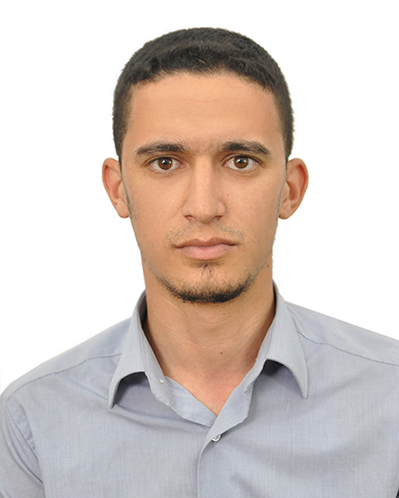
Mahfoud Ali Zoui is a professor of civilization at the Department of English, Guelma University, Algeria. He is the author of many papers including: “Freedom of Expression and the Right to Offend: Western Vs. Islamic Perspectives”, and “Media Discourse and Intolerance of Muslim Post -9/11 Visibility in the West: The British Context”. He presided over the organizing committee of the international conference “15 Years in the New Millennium: The Grand Upheavals; Global Security, Ideological Conflict and Literary” held at Guelma University in November 2016. His research areas of interest include faith minorities and intercivilizational dialogue, political Islam, and multiculturalism.
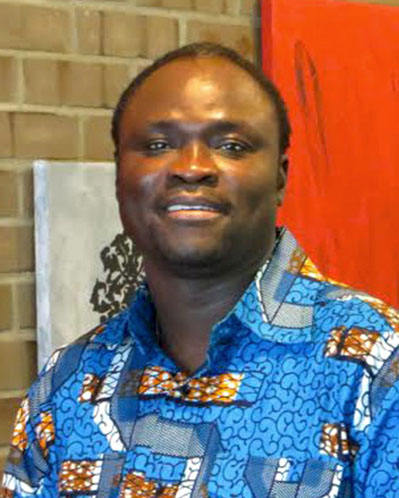
Jean-Baptiste Sourou is Professor of Communications and the Founder and President of the Center for Documentation and Research on Art and Social Sciences (CeDReS Project) in Benin Republic. He also teaches African Cultures and Migrations in universities and schools in Italy. He holds a BA, an MA, and a PhD in Social Communications and Social Sciences from the Gregorian University. He also has a BA and an MA in Theology from universities in Padua and Rome. He is an international media practitioner, and won The International Award of Solidarity with Refugees at the 2013 and 2016 International Journalism and Media Awards, and the Award of the Best Writer/Author at the 2013 Africa-Italy Excellence Awards. Prof. Sourou’s research interests center on rites, dance, and music, and the relationship between media, culture, and religion, especially in Africa. His research has earned him international honours such as the 2012 African Studies Association (ASA) Presidential Fellowship, and the 2007 International Award in Media, Religion, and Culture. He also researches African immigration through the Mediterranean Sea to Europe. He has founded two associations, Cedres NGO in Benin and Il Cedro in Italy, to promote education in Africa as a solution to the endless flow of African forced migrations towards Europe. He has published writings on African cultural, social, and religious life. He is a member of the International Society in Media, Religion, and Culture, and Consultant for the Observatory of Media and Religion in Canada.
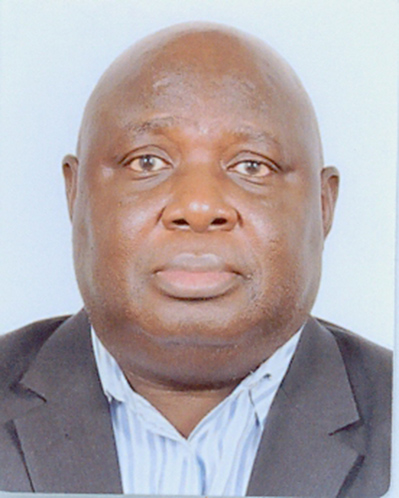
Kenneth Asamoa Acheampong is an associate professor at the University of Botswana (Law Department). He is admitted as a Barrister and Solicitor of the Supreme Court of Ghana. He holds an LLB from the University of Ghana, an LLM from the University of Saskatchewan (Canada), and a diploma in Human Rights from Lund University (Sweden). His research focuses on International Human Rights Law, International Law, Refugee Law, and International Humanitarian Law. His recent seminal publications include the following: (i) ‘Human Rights, National Law and the Reduction of Statelessness’ [in Kaajal Ramjathan-Keogh (ed.), Protection Frameworks for Refugees and Migrants in Southern Africa, (2018), Johannesburg: Southern Africa Litigation Centre, pp. 19 – 35]; and (ii) ‘Human Dignity and the Human Rights of Botswana Prisoners of Foreign Origin Living with HIV/AIDS’ [in NORDIC Journal of Human Rights (2017) Vol. 35, No. 2, pp. 1 – 19]. He has previously been Editor-in-Chief of both the Lesotho Law Journal and the University of Botswana Law Journal.
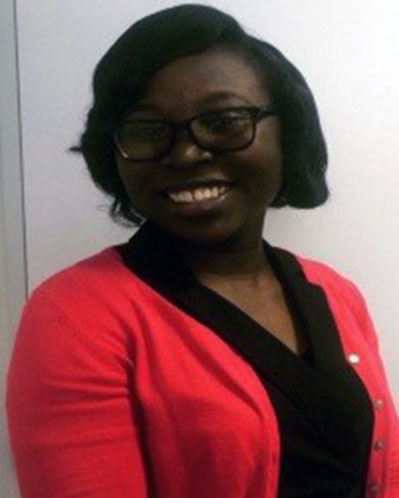
Motilola Olufenwa Akinfemisoye is a lecturer in the department of Media Studies at the University of Botswana. She holds a PhD in Journalism and Media from the University of Central Lancashire, Preston. She has worked both as a print and broadcast journalist in Nigeria and is a member of the International Association for Media and Communication Research (IAMCR). Among other things, her research interests focus on how new media technologies shape and impact everyday newsroom practices in Nigeria, representations of women in the media, and the intersection of religion and new media in Africa. Her research findings have been published in African Journalism Studies, Digital Journalism and as chapters in reputable books.
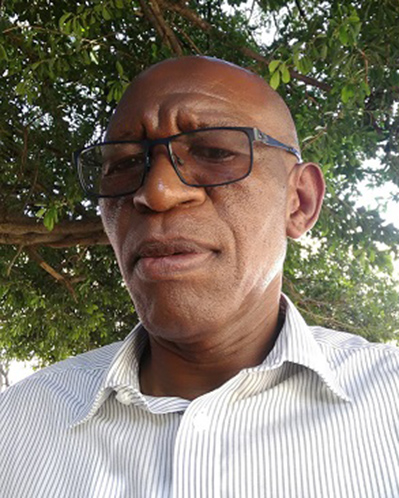
Mr. Sebonego Dellah Barungwi is a member of the Baha’i Community of Botswana since 1984. He has served in a number of Baha’i committees including the National Spiritual Assembly which is the supreme governing body of the Baha’i’s of Botswana. Mr. Barungwi currently works at the Ministry of Finance and Economic Development as Deputy Manager responsible for Recruitment and Employee Relations.
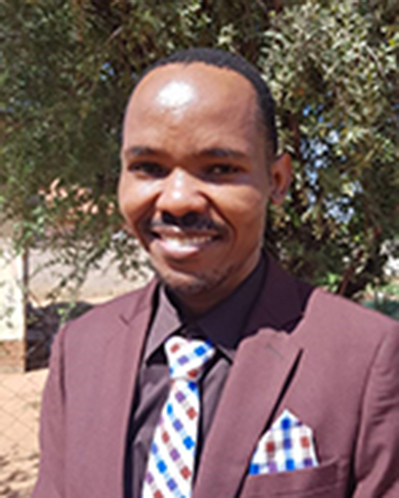
Dr. Sidney Berman is currently pastoring a branch of Africa Evangelical Church in Gaborone, Botswana. He holds a PhD in Old Testament Interpretation. Dr. Berman has worked as a postdoctoral fellow at North West University where he researched on the Setswana Bible and taught Biblical Hebrew. Previously, he was a lecturer at the University of Botswana where he taught Old Testament studies, Biblical hermeneutics and Hebrew language. He has published books, articles, and chapters in the areas of Old Testament, gender, the books of Ruth and Hosea, translation studies, and biblical hermeneutics.
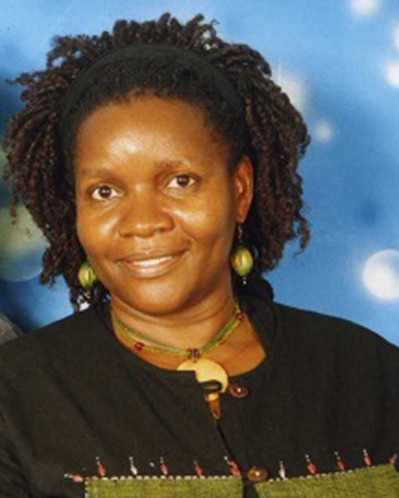
Musa W. Dube studied New Testament literature at the University of Durham (UK) and the University of Vanderbilt (USA), graduating in 1990 and 1997 respectively. Her research interests include gender, postcolonial, translation and HIV/AIDS studies. Dube is a prolific writer and internationally-sought speaker, who has given talks in over twenty-seven countries and authored 262 academic works, published in journals, books, encyclopaedias, and magazines; and an editor of eleven anthologies. She is an active member of the Circle of Concerned African Women Theologians and the Society of Biblical Literature. Dube is currently a professor at the University of Botswana, Department of Theology and Religious Studies.
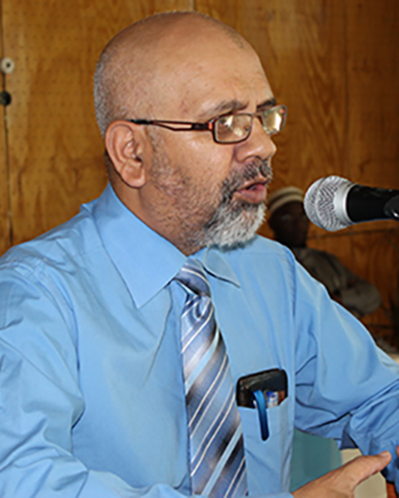
Muhammed Haron is a South African professor who is based in the Department of Theology & Religious Studies at the University of Botswana. He authored The Dynamics of Christian-Muslim Relations (2006), edited Going Forward: South African-Malaysia Relations (2008), compiled/edited South Africa’s Muslims: Annotated Bibliography (1997), and South Africa’s Truth and Reconciliation Commission: An Annotated Bibliography (2009), and co-edited Islamic Civilization in Southern Africa (2009) and Muslim Higher Education in Postcolonial Africa (2016). He edited special issues on ‘Arabo-Islamic Manuscripts [in Africa]’ for Tydksrif vir Letterkunde (Pretoria 45:1, 2008), and a special issue on ‘Muslims in Southern Africa’ for BOLESWA: Journal of Theology, Religion and Philosophy (University of Botswana 4:1, 2012). He co-edited Annual Review of Islam in Africa (Cape Town 2015/2016).
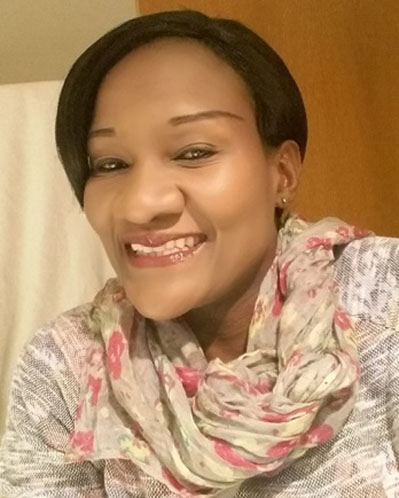
Dr. Mmapula Diana Kebaneilwe is a Womanist scholar and lecturer in Hebrew and Old Testament Studies at the University of Botswana. She completed her PhD at the University of Murdoch in Western Australia. Her research interest is wide including: Women and the Hebrew Bible; the Hebrew Bible and Environmental issues; Women, HIV and AIDS, and the Bible.
Malebogo Kgalemang is a senior lecturer at the University of Botswana. She has a demonstrated history of working in the higher education industry. She attended Drew University, Glasgow University, and the Universit of Botswana, and has an MPhil; MTh; BA (HUM); and a PGDE focused in Biblical Studies; Postcolonial Theory; Postcolonial Feminist Theory; and Early Christianities.
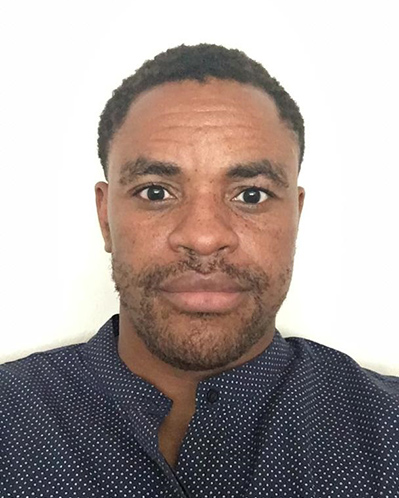
Tinashe Madebwe received a PhD in international environmental law from the University of Strathclyde in Glasgow. Prior to that he studied for an LLB and an LLM at Rhodes University in South Africa. His research interests lie in international environmental law, environmental law, and public law. He is presently employed as a senior lecturer by the University of Botswana, Department of Law, and previously, he lectured at Midlands State University in Zimbabwe.
Advisory and Arbitration Council Member, Ministry of Nationality, Immigration and Gender
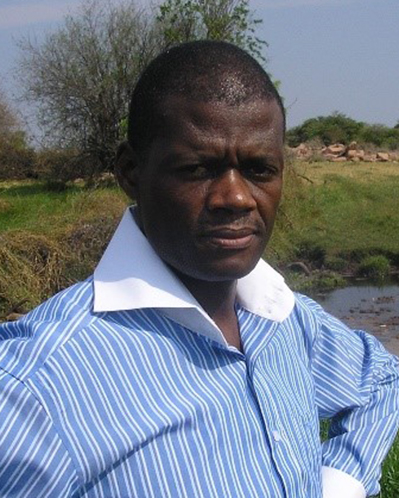
Prof Joseph E. Mbaiwa is the Director of the Okavango Research Institute (ORI), University of Botswana. His credentials are as follows: Professor of Tourism studies (2013 to present), Associate Professor of Tourism Studies (2010-13), Senior Research Scholar (2005-2010), Research Scholar (2000-2005). He graduated with a PhD in Recreation, Park & Tourism Sciences at Texas A&M University (USA) in 2008. He also holds MSc (Environmental Science), a Post graduate Diploma in Education (PGDE) and a Bachelor’s Degree in Environmental Science all from University of Botswana. Professor Mbaiwa also hold a Postgraduate Certificate in Public Sector Project Management from Botswana Accountancy College (BAC). Professor Mbaiwa has close to 20 years experience in tourism and natural resource management research and consultancy experience in Botswana. He is widely published on issues of tourism development, rural livelihoods and biodiversity conservation issues with focus on the Okavango Delta Botswana. He was a taskforce member appointed by the Ministry of Environmental, Natural Resource Conservation and Tourism to prepare a proposal dossier that resulted in the Okavango Delta being listed as the 1000th UNESCO World Heritage Site.
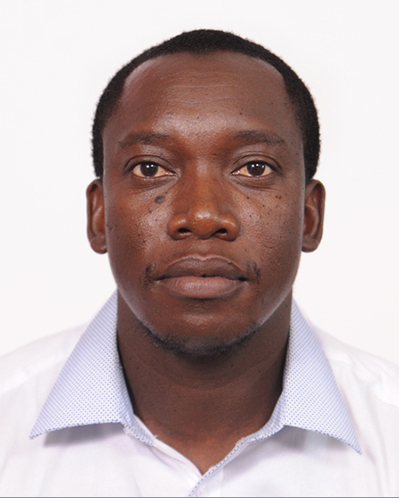
Kenosi Molato is a young scholar from the Northwest district in Botswana. Having grown up in the swamps of the Okavango delta, Kenosi Molato loves the beauty of the delta and the cultures of the river people of Botswana. His passion is to write about the theology and the culture of the environment from the perspective of Botswana. He obtained a Masters of Arts in Theology and Religious Studies at the University of Botswana in 2017. His research interests are environment from Biblical perspective, Setswana culture, and honor and shame.
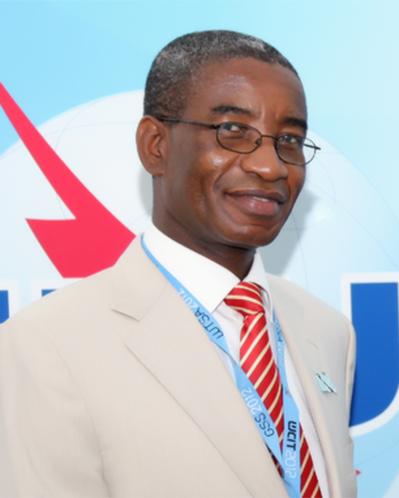
Minister for Presidential Affairs, Governance, and Public Administration
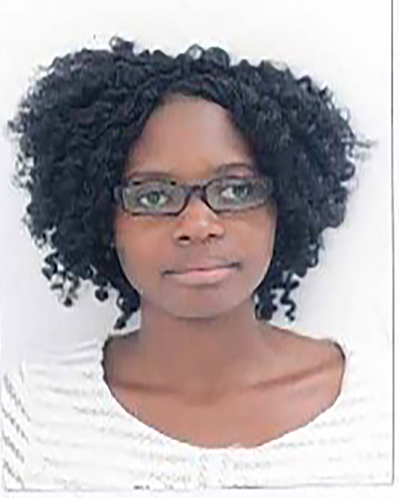
Dorcus Motswadira is a student at University of Botswana working towards a degree in Special Education specializing in visual impairment. She is also majoring in Theology and Religious Studies.
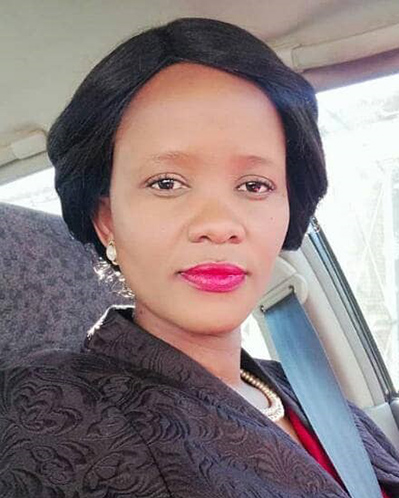
Bridget Lorato Mphusu holds a Master’s degree in Counseling from Dallas Baptist University. She has been the CEO for Botswana Christian AIDS Intervention Programme since 2015. She has served in HIV for 14 years now and is passionate about behavioral and social change particularly for women and young girls.
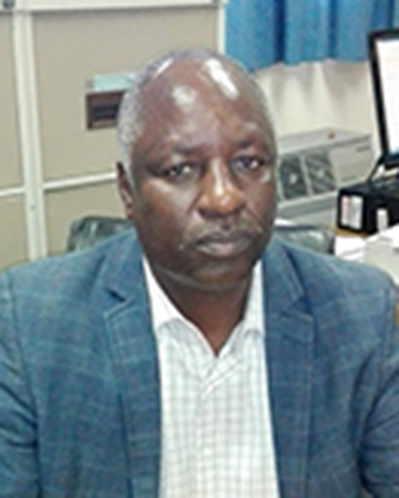
Fidelis Nkomazana is currently an associate professor of Church History and Head of the Department of Theology and Religious Studies at the University of Botswana. He studied for his PhD at the University of Edinburgh. He is widely researched and published on church history, women and other related aspects, such as the histories of the Anglican church, Roman Catholic Church, Pentecostalism, and Dutch Reformed church. His current research focus is on Pentecostalism. He has published several articles in peer reviewed journals, chapters in books, and attended several international conferences.
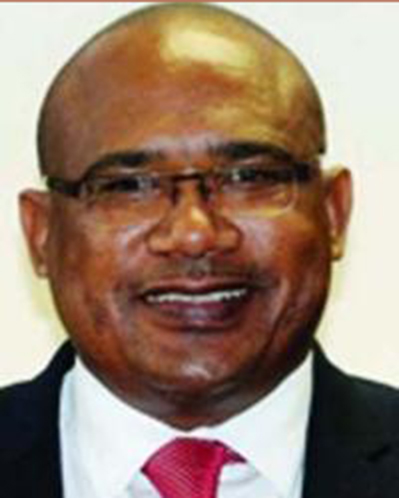
David Norris is the Vice Chancellor of the University of Botswana (UB). Prior to joining UB, Professor Norris was Deputy Vice Chancellor for Research and Innovation at the Botswana International University of Science and Technology (BIUST). Prior to working for BUIST, he worked for the University of Limpopo ((formerly University of the North) of South Africa. He also worked for Austin Peay State University in USA from 1998 to 2000. Professor Norris is a graduate of the University of Botswana, having obtained a BSc in Biology and Physics after which he worked for the Department of Agricultural Research as well as a part time biology lecturer at UB. Professor Norris holds a PhD in Animal Science obtained from Michigan State University (USA) with a major in Animal Breeding and Genetics, and minors in Statistics and Animal Biotechnology. He also holds an MSc in Animal and Forage Science obtained from the University of Reading (UK) with a major in Animal Production and minors in Biochemistry. In addition, Prof Norris received a Graduate Certificate in Agricultural Research for Development from the University of Wageningen International Centre for Development Oriented Research in Agriculture (ICRA) in the Netherlands. He is a renowned scholar who has published widely in reputable journals. His notable strengths are in Innovative Teaching and Learning; Curriculum Development and Review; Research Development and Innovation; Higher Education Administration and Management; Change Management, Process Management and Strategic Leadership; with a notable record in research collaboration and research fundraising.
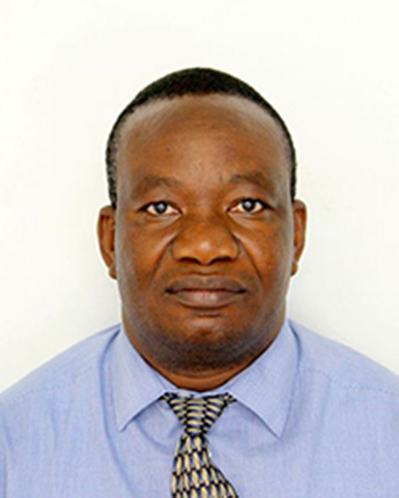
Abednico Phili is a teacher of Religious Education with the Ministry of Basic Education. Through his years of uninterrupted service, he rose to the level of Senior Teacher responsible for the Religious Education Department based at Ledumang Senior Secondary School. Currently he is a Senior Examiner for Religious Education with Botswana Examinations Council responsible for marking B.G.C.S.E. He serves at BEC on the validation committee responsible for the Junior Secondary School assessment for Religious Education. Phili is also the current Chairperson for the National Religious Education Panel overseeing the formulation of Religious Education Curriculum under the Department of Curriculum and Evaluation. He has a Bachelor of Humanities in Theology and Religious Studies, a diploma in Pastoral Theology, and a post graduate diploma in Education. Currently he is a Master’s student in the Department of Theology and Religious Studies in the area of Religion and Philosophy. He has successfully completed his course work and is now doing research focusing on urban burials and their implications on Kalanga burial rituals.
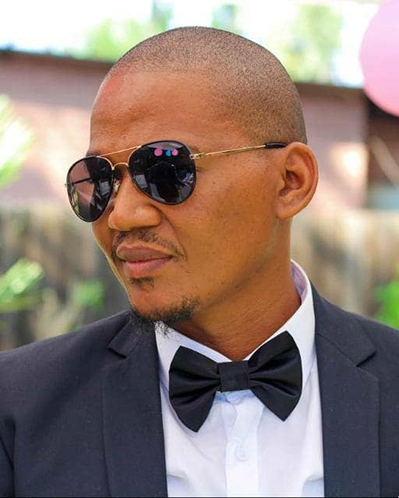
Sheikh Edwin Salim Saidoo earned his BA in Islamic Law (Shariah) from the Islamic University of Madina, KSA. He is currently pursuing an MA in Philosophy, Theology and Religious Studies at the University of Botswana, and the title of his Thesis is The Interconnection between Islam and Tswana Culture: A case-study of marriage amongst the Ngwaketse. Being both a Motswana and a Muslim, Sheikh Salim aims to prove to both of the cultural groupings that they are more common than they actually perceive, and that religion and culture are more compatible than parallel. He is an active daa’ee (Islamic Propagator) who has organised a number of youth seminars and workshops. He participated in the Vision2016 (a long-term vision for Botswana) National Stakeholder’s Conference under the pillar “A Moral and Tolerant Nation”, which aimed at assessing the progress of the Vision through active participation of all stake-holders. He also attended a number of regional and international conferences, amongst them the 2nd International Conference on Islamic Civilization in Southern Africa held in Durban, South Africa in 2017, in which he submitted a paper based on his thesis. He took part in the inaugural 1st International Muslim Minorities Congress held in Abu Dhabi, UAE in May 2018 and recently attended the conference on “The Role of Muslim Youth in the Africa of Tomorrow” held in Kampala, Uganda, in April 2019.
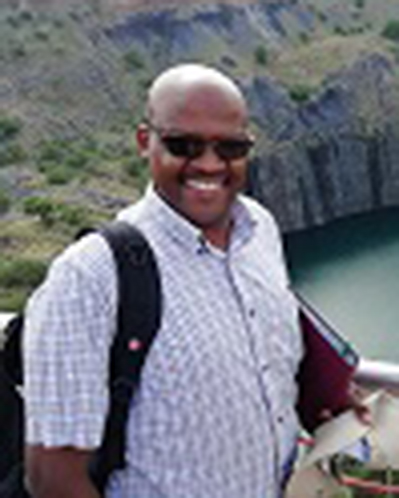
Phillip Segadika is Chief Curator and Head of the Archaeology and Monuments Division at the Botswana National Museum. A landscape archaeologist by training, Segadika is responsible for the conservation of monuments and heritage sites, formulation of destination management plans as well as the development of heritage sites for tourism. He just completed his term as Board member of the Botswana Environmental Assessment Practitioners Association (BEAPA). Segadika's research interests are on the management of intangible cultural heritage at world heritage sites and he is a regular contributor to local media on heritage perspectives. Phillip Segadika is a bi-vocational minister having served as pastor and overseer of The Church of God of Prophecy in Botswana for over 20 years. He is currently on appointment as the Southern Africa regional coordinator for the Church of God of Prophecy, a Pentecostal organization operating in 34 other African nations.
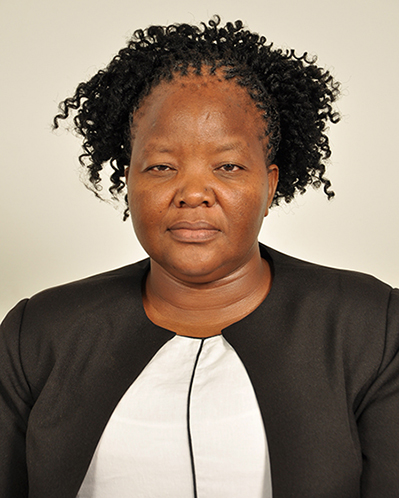
Senzokuhle Doreen Setume holds a PhD in Anthropology from Leiden University, The Netherlands. She also holds a MA (Humanities) in Theology and Religious Studies and a Master’s in Education (Research and Evaluation) both from the University of Botswana. Her areas of interest are African traditional religion(s) and how it relates to different aspects of life such as HIV and AIDS, disability, and gender. Dr. Setume teaches courses on African traditional religions and world religions. She is interested in exploring how African traditional religions are interacting, adapting, adopting and being shaped by (or shaping) modernity and globalisation in terms of gender, urbanization, and formal education. Her publications include ‘Myths and Beliefs about Disabilities: Implications for Educators and Counsellors;’ ‘HIV and AIDS knowledge and attitudes among form three junior Secondary School students in Kweneng and Central District;’ and ‘HIV and AIDS knowledge and attitudes among different marital statuses in Botswana: Results of the fourth Botswana Aids Impact Survey of 2013.’ Her current research involves a joint project on ‘Ubuntu and Community Building in the Urban Space: An Exploration of Naomi, Laban, Baby and Bridal Showers in Gaborone.’ Setume has presented at a number of conferences both locally and internationally.
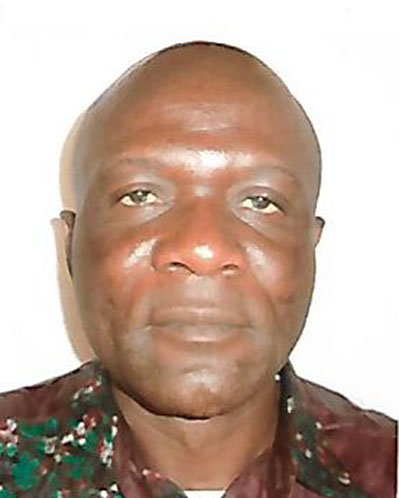
Tanto Richard Talla, Associate Professor of Archaeology, holds a PhD in Ethnoarchaeology from the University of Ibadan, Nigeria (2003). He was Head of Service, Research and also Chair, Department of History, at the University of Buea, Cameroon from 2012 to 2015. He is currently Vice Dean in-charge of Programmes and Academic Affairs, Faculty of Arts, the University of Bamenda, Cameroon where he also teaches archaeology and history in the Department of History. He has widely published in peer reviewed journals and is currently working with Professor Elias Bongmba of Rice University, Houston-Texas, on a project entitled “Land and Authority in Postcolonial Cameroon”.
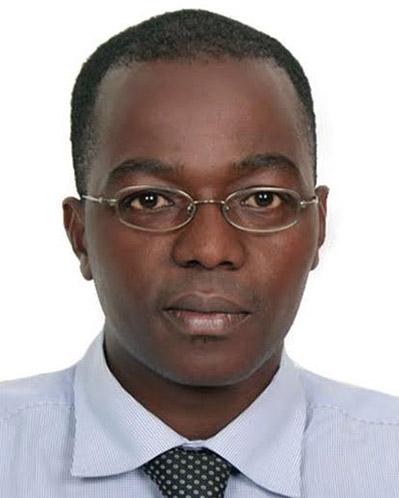
Dr. Célestin Gnonzion obtained his PhD from the Pontifical Gregorian University of Rome in Italy in 2008. He is founder and President of the Ivoirian Network for promotion of Ethics in Society (Réseau Ivoirien pour la promotion de l’Ethique dans la société-RIPES). Dr. Gnonzion is a teacher in the Faculty of Information, Communication and Arts, Félix Houphouet-Boigny University in Ivory Coast. He lectures on topics of journalism and ethics such as Ethics of Public Social Communications, Ethics and Deontology in Media and Methods, and Techniques of Social Science. He has published on topics such as the impact of press on democratic processes, ethical decision-making factors of journalists, and Ivory Coast and media freedom.
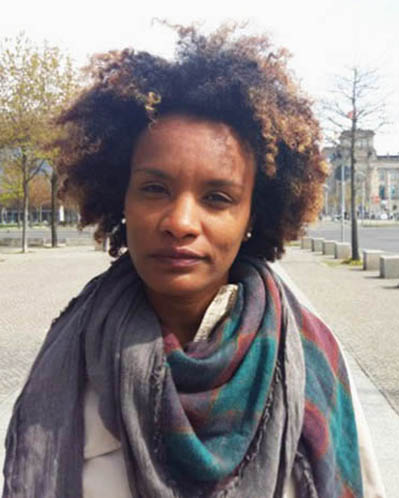
Serawit Bekele Debele is a Fritz Thyssen Stiftung postdoctoral fellow based at the University of Bayreuth, Germany. Currently she is conducting research on Irreecha celebration and its political significance among the Oromo living in Europe. She has published articles on women and religious authority, female leaders in new religious movements, fieldwork in the study of religion, and religion in revolutionary Ethiopia. Her forthcoming book is titled Managing Irreecha Ritual: Religion in post-1991 Ethiopia.
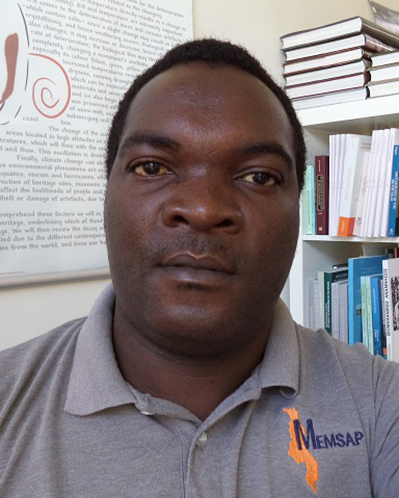
Oris Malijani is the Cultural Heritage Specialist based in Malawi with vast experience in both the public and private sector in the development, conservation and management of African cultural and natural heritage. His practice specializes in development of strategic management planning frameworks for heritage sites, conservation and management of cultural heritage sites, and research and capacity building on African heritage. He has worked with government cultural and natural heritage institutions, private firms, academia and non-governmental institutions on promotion, planning and development of African cultural and natural heritage. He works directly with local communities and other stakeholders in development and implementation of cultural heritage projects in areas of conservation, outreach programmes, marketing, research and resource mobilization. Among his research interests are topics like Heritage and Law, Cultural Landscapes, Heritage Management and Planning, Conflict Management in Heritage Places and Public Archaeology. His PhD research in Heritage Studies at Brandenburg Technical University (BTU), Cottbus Germany has developed an integrated strategic management planning methodological framework for integrating development in Sub-Saharan African World Heritage Cultural Landscapes. He also holds a Master’s Degree in Heritage Management from University of Kent, UK and a Bachelor of Education in Human and Social Geography from the University of Malawi.
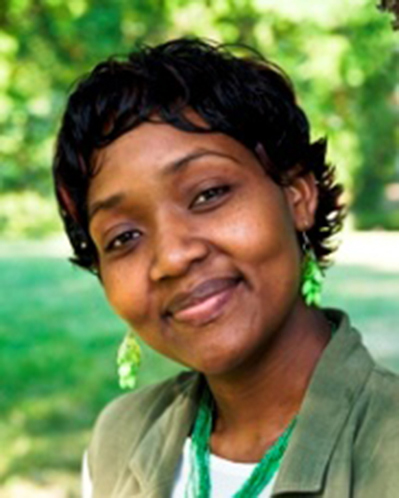
Dr. Loreen Maseno is a Humboldt Research Fellow at the University of Bayreuth working on the project Hagar in Africa. Her PhD from University of Oslo in 2008 culminated in an interdisciplinary dissertation that spans across the disciplines of Christian Theology, Gender Studies and Ethnography. She is also a research fellow at the Department of Biblical and Ancient Studies, University of South Africa and serves as the Kenya National Representative of the African Association for the Study of Religions (AASR). Her research interests include Religion and gender, feminist theology, Christology, Pentecostalism, Religion and security, and Sexuality.
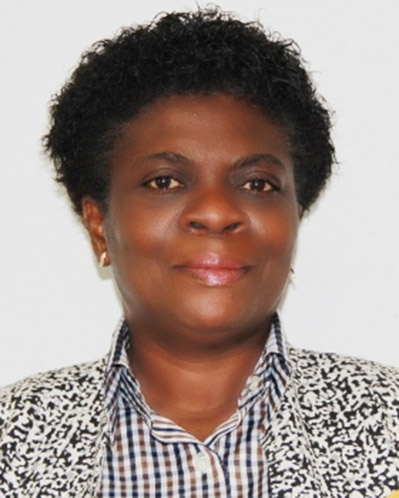
Adelaide Anno-Kumi, Chief Director of the Ministry of Interior, Ghana, advises the Honorable Minister of the Interior. She holds an Executive Master in Consultancy and Project Management Services, (EMCP), a BA (Hon) in Political Science, a Bachelor of Law, and as a teacher, she earned CertA. Mrs. Anno-Kumi has worked at the Ministry of Transport, Education and Agriculture in various capacities. She has served on several boards, committees, delegations, and teams and also has rich experience in policy formulation and implementation. In August of 2016 she won the most influential Civil Servant award. She is an educationist, a lawyer by profession, proactive, principled, industrious, and an effective team player with multi-skills. She is an advocate for women’s empowerment, child development, and other security related issues. Mrs. Anno-Kumi has served two terms as a member of Prisons Interdenominational Church Council. She is also a member of the Women's Fellowship and a legal advisor to the Prisons Interdenominational Church. She gives lectures on domestic issues to the women's fellowship and youth fellowship.

Abamfo Ofori Atiemo is a senior lecturer and former Head of the Department for the Study of Religions, University of Ghana, Legon. He obtained his PhD from the Free University of Amsterdam after he had studied for the Master of Philosophy and Bachelor of Arts degrees in the Study of Religions at the University of Ghana. He also holds other qualifications from the Institute of Social Studies (ISS) in The Hague and the Trinity College, Legon. He has been a senior fellow at the Indian Institute of Advance Study in Shimla, India; a visiting lecturer at the Kwame Nkrumah University of Science and Technology, Kumasi, Ghana; and a visiting professor at the Faculty of Theology, University of Pretoria, South Africa. He has also been a fellow of the Linnaeus-Palme Exchange Programme at the University of Gavle, Sweden, and a visiting fellow of the African Studies Centre, Leiden, in 2015. He teaches Comparative/History of Religion and his current research interests include Religion and Human Rights; Hinduism in Ghana; Pentecostalism; and Evil and Popular Piety in African Christianity and Islam. Among his recent publications are Unpacking the Sense of the Sacred: A Reader in the Study of Religion (2014), and “Religion and custom are not the same: sacred traditional states and religious human rights in contemporary Ghana” in Law and Religion in Africa–The Quest for the Common Good in Pluralistic Societies (2015).
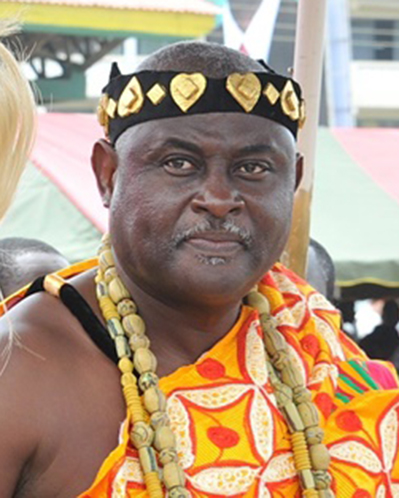
His Majesty Nii Okwei Kinka Dowuona VI, is the Osu Mantse and President of the Osu Traditional Council. Nii has established an initiative called Osu Mantse Community Initiative (OMANCODI) that seeks to support the stool in its socio-economic development plan for the people of Osu. He holds a Degree in Chieftaincy Leadership, a diploma in Computer Studies, and a certificate in GCE Ordinary and Advance level. He trained as a banker and worked with SSB Bank for our over 20 years. Currently he is the President, Greater Accra Regional House of Chiefs Dodowa, President of Osu Traditional Council, and a member of the National House of Chiefs. Nii Kinka Dowuona VI, is the Life President of the Osu School Management Committee of Osu Section 30 (Osu Cluster of Schools), a life member of the full Gospel Business Men’s Fellowship, a distinguished fellow of the Distinguished Scholars in Africa, and a member of the civilian Institute of Democratic Administration(CIDA). Nii Kinka Dowuona VI, has been recognized as Distinguished Fellow of Africa in 2012, as Nanayaa Most Personality in 2015 and again in 2016, and as CIDA Fellow in 2016. He is a graduate from the Cambridge University Intentional and holds a certificate from African Transformational Leadership institute USA. He is a member of the Pan African Leadership Initiative Boston, and a member of the African Chieftaincy Transformational Leadership Institute Boston.
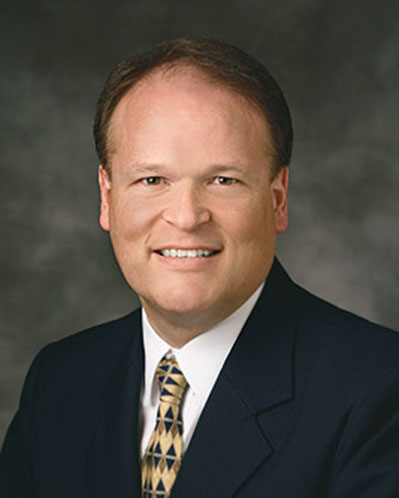
Elder Marcus B. Nash was sustained as a General Authority Seventy of The Church of Jesus Christ of Latter-day Saints on April 1, 2006. At the time of his call he had been serving as a member of the Fifth Quorum of the Seventy in the North America Northwest Area. He has served as President of the South America West and South America Northwest Areas and as assistant in the North America Northeast and North America Southeast Areas. He has also served as an Assistant Executive Director in the Church History and Correlation Departments, Executive Director of the Correlation Department, and as a member of the Boundary and Leadership Change Committee. He is currently serving as a member of the Africa West Area Presidency. Elder Nash graduated from Brigham Young University with a bachelor’s degree in international relations and earned a law degree from the J. Reuben Clark Law School at BYU. He was a partner in a major Seattle law firm at the time of his call as a Seventy.
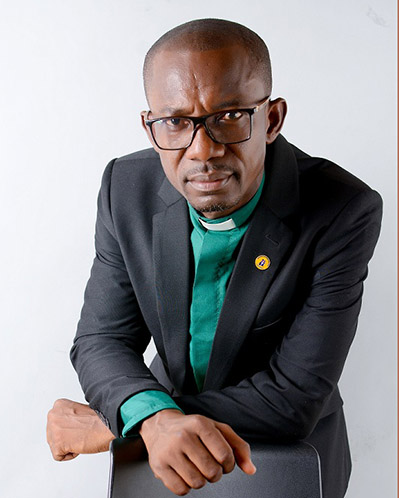
Rev. Philip Kwadwo Okyere is an ordained minister of the Methodist Church Ghana and a professional teacher. He is currently serving as a chaplain and teacher at Oyoko Methodist Senior High School, Oyoko in the Koforidua Diocese of the Methodist Church Ghana. He is also a PhD candidate at the Department for the Study of Religions of the University of Ghana, Legon. He has submitted and successfully defended his PhD thesis. His area of specialization is Church History and Mission. His research interests include Ghanaian Christian pilgrims' sanitation consciousness at sacred sites and the possibility of replicating that consciousness as an environmental sanitation agenda in Ghana; the influence of Pentecostalism on Christian pilgrims' appropriation of sacred sites; African primal religion as a sub-structure of African Christianity and African humanities and the paradox of Western Education in Ghana. Rev. Okyere has also published on 'Rethinking Religion and Development: Contextualization of Christological Titles among the Akan Speaking Christians in Ghana' in Religion and Sustainable Development: Ghanaian Perspectives, a refereed Journal edited by George Ossom-Batsa, Nicolleta Gatti and Rabiatu Deinyo Ammah, and published by Urbaniana University Press in 2018.
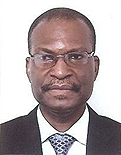
Kofi Quashigah is Dean of the School of Law, University of Ghana. Before joining the University of Ghana he taught at the University of Nigeria Enugu Campus. He was a Fulbright Scholar at the Harvard Human Rights Program between 2001-2002 and a McArthur Foundation Visiting Scholar at the University of Wisconsin in 1992. His teaching and research interests include Constitutional Law, Human Rights, International Humanitarian Law, Jurisprudence, Governance, Elections Law, Law and Religion, and Alternative Dispute Resolution. He is a member of the General Legal Council of Ghana and on the Advisory Board of the Ministry of Justice. For several years he has been the President of the Ghana Association of Certified Mediators and Arbitrators.

Ludovica Decimo is currently a PhD Student in Law, specifically Law and Religion and Intercultural Law, at the University of Padua, Italy. She is a teaching assistant in Law and Religion, Intercultural and Religions Law, Ecclesiastical Patrimonial Law and No-Profit Organization Law, Department of Law, Università degli Studi della Campania – Luigi Vanvitelli, Italy. Among the many conferences she has attended is Right of Religious Minorities in the Islamic Territories – Legal framework and the call to the initiative, organized by Forum Promoting Peace in Muslim Societies and the Ministry of Religious Endowments and Islamic Affairs of Kingdom of Morocco (2016). She was a lecturer at international conferences including the Cardiff Festival for Law and Religion – Celebrating the 25th Anniversary of the LLM in Canon Law at Cardiff University, the 2016 Annual Conference of the Law and Religion Scholars Network (LARSN) organized by Cardiff University and the Center for Law and Religion; the 24th World Congress of Political Science – Politics in a World of Inequality, organized by the International Political Science Association, Poznan (2016).
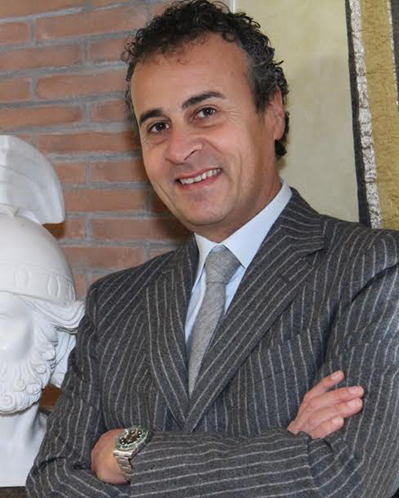
Antonio Fuccillo is Full Professor of Law and Religion and Intercultural Law at Universita degli Studi della Campania- Luigi Vanvitelli (Italy). Recently he was appointed a member of the School of Law (Law & Religion) at Renmin University of China in Beijing. He is a cultural correspondent for the MACTT of Malta and a member of the PhD board at the University of Rome La Sapienza. He attended the conference Right of religious minorities in the Islamic territories – Legal framework and the call to the initiative, organized by Forum Promoting Peace in Muslim Societies and the Ministry of Religious Endowments and Islamic Affairs of Kingdom of Morocco (2016). He was a lecturer at international conferences including International Consultation on Religious Freedom Research, Istanbul (2013); Crime and Punishment: nature, problems and perspectives of Canonical Penal Law and its relation to Civil Law, Washington, DC (2014); Religious Freedom in the Post‐Secular Age, Switzerland (2014); Cardiff Festival for Law and Religion – Celebrating the 25th Anniversary of the LLM in Canon Law at Cardiff University and Law and Religion Scholars Network (LARSN) – Annual Conference 2016, organized by Cardiff University and Center for Law and Religion (2016); and 24th World Congress of Political Science – Politics in a World of Inequality, organized by International Politcal Science Association – IPSA,Poznan (2016).
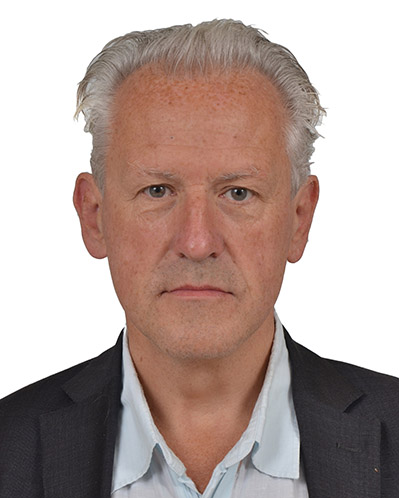
James Campbell is a Jesuit priest. He grew up in Glasgow and his Catholic education under the Marist Brothers in Glasgow instilled in him a deep sense of working for the common good and social justice. Before going to university Campbell had a decade-long career studying and working in environmental management, specializing in pollution control. He was awarded first prize in an essay competition by the Royal Society of Health on the legal implications of European environmental policies. After joining the Jesuits, he read PPE as a senior scholar at Oxford, completing the degree in two years, and was awarded first prize in the Eisenhower Centennial Essay Competition in 1990. Theology studies followed, including a year reading Russian and Greek theology at the Catholic University of Leuven (KU Leuven). Campbell’s first mission after ordination was to Stonyhurst College as Chaplain for three years. He had a wide range of other pastoral experiences in hospitals, parishes, and chaplaincies, including Farm Street Church in London and Oxford University Catholic Chaplaincy. He was Assistant Superior, Dean of Degrees, and Tutor in Canon Law at Campion Hall, Oxford University until 2017. Currently, Campell is Chief Librarian and Senior Lecturer in Canon Law at Hekima University College which is a constituent college of the Catholic University of East Africa in Nairobi. He has held several ecclesiastical posts, including that of Judge. He is published widely and acts as a canonical consultant. He was awarded the LLM in Canon Law from Cardiff Law School, Wales and the joint JCD/PhD in Canon Law from KU Leuven.
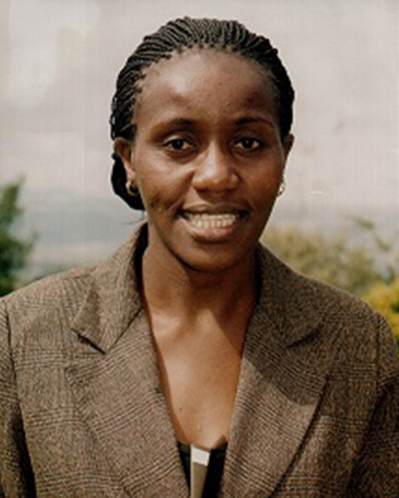
Faith Kabata is a lecturer and Chair of the Department of International Law at Kenyatta University School of Law. She holds a Doctor of Laws degree from the University of Pretoria. Her teaching and research interests include international human rights law, human rights law, international organizational law, and public international law. She is currently conducting research on indigenous peoples' land rights and on religion and international human rights law. She is also a member of the African Association for the Study of Religions.
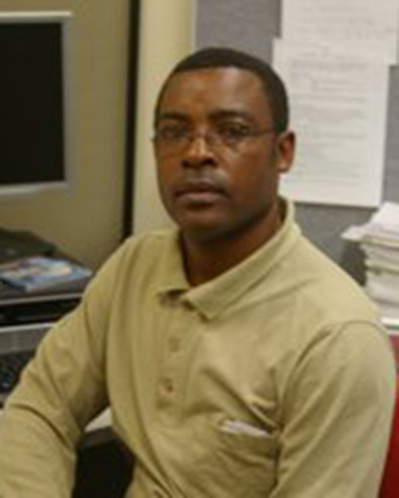
Herman Kiriama trained in archaeology and heritage management at the Universities of Nairobi (BA Hons), University of Cambridge (UK) (MPhil) and Deakin University (Australia)(PhD). He has held various academic and professional posts. Currently he is Associate Professor of Heritage Studies, Kisii University. He has been a Senior Lecturer in Archaeology, Kenyatta University 1991-2001, visiting Lecturer, Nairobi University and Pwani University College 1986-2006; Head, Archaeology Department, National Museums of Kenya 1986-1991; Head, Department of Coastal Archaeology 2005-2011; Consultant, Programme Specialist, ICCROM, 2007-2009 and Coordinator, Immovable Heritage, Centre for Heritage Development in Africa (CHDA) (2010-2011). He was a Research Fellow, Deakin University, Australia (2011-2012). Between 2012 and 2013 he was the Team Leader, Projects, in the Australian Cultural Heritage Management, a consultancy firm in Melbourne, Australia. In 2014-2015 he was visiting Professor of Archaeology at the school of Archaeology and Museum Studies of Peking University, Beijing, China. He is also a member of several international organizations that include ICOMOS, ICOM, and World Archaeological Congress. He has published widely in the heritage sector, and he is author and co-author of a number of books on heritage. Currently he is the Co-Editor of the African Journal of Cultural Heritage Studies.
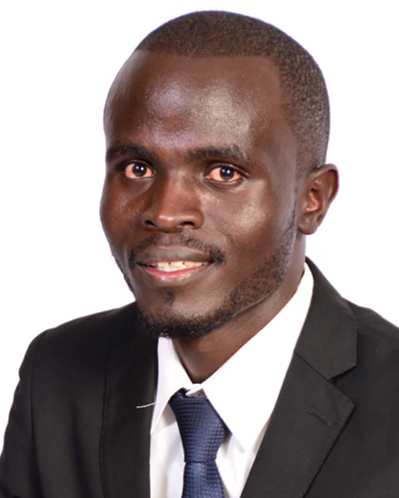
King’asia I. Mamati is a PhD candidate at the Department of Philosophy, Theology and Religious studies, Moi University. He has a Masters of Arts in Religious studies and a bachelor’s degree in education (arts) both from Moi University. His research interest includes; indigenous religions and environment conservation, religion and peace building, violence and conflict resolution, religion and education.
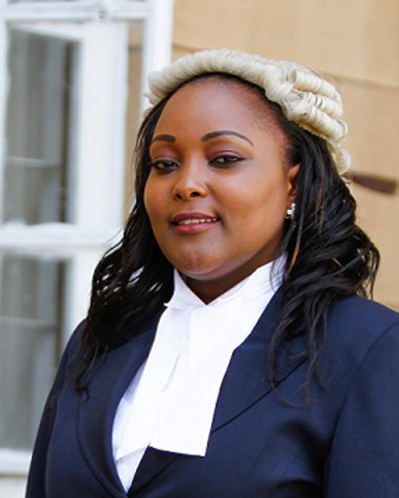
Hildah Ntinyari Mutwiri is a lecturer, Department of International Law at Kenyatta University School of Law. She is currently pursuing a Doctor of Laws degree in environmental law from the University of Nairobi Centre for Advanced Studies in Environmental Law and Policy. Her teaching and research interests include international environmental law, oil, mineral resources and energy law, liability and responsibility for environmental damage. She is currently conducting research on women, gender and ecofeminism perspectives, and environmental sustainability.
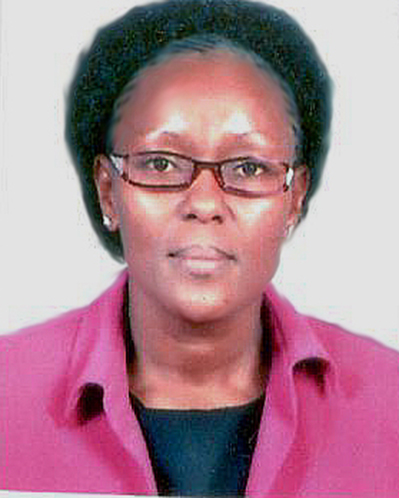
Maryann Mwangi is a sociologist with interests in the area of gender, sexuality and HIV & AIDS, children, disability studies, and criminology. She holds an MA and a BA in Sociology and is currently pursuing her doctoral studies at Kenyatta University in the area of gender based violence. She is a trained Trainer of Trainers majoring in Mentorship and Gender Issues. Currently she is a lecturer at St. Paul’s University lecturing in Sociological Units in Social Work, Criminology and Theology. She coordinated a Masters in Community Care and HIV & AIDS for over ten years and was also the Head of Department for Sociology and Psychology in the Faculty of Social Sciences. She is involved in the development of Distance learning materials in various programs that teach Sociological Units. She has written several articles and book chapters as well as presented papers at local and international conferences. She sits on the board of a girls home that rescues orphans and abused babies and girls.
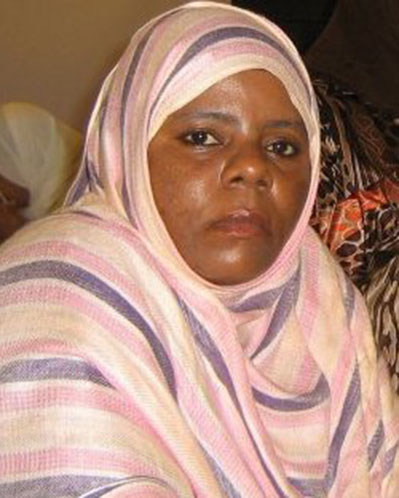
Dr. Esha Faki Mwinyihaji is a lecturer in Islamic Studies and current Chair of the Department of Religion, Theology, and Philosophy at Maseno University, Kenya. Her research interests are Muslim women’s rights and the Shari’a, with a focus on education, inheritance, politics, marriage, and property; religion and politics, inter-religious dialogue, divination, and Islam and human rights. She has written a book on The Persistence of Divination among Swahili Muslims in Kenya.
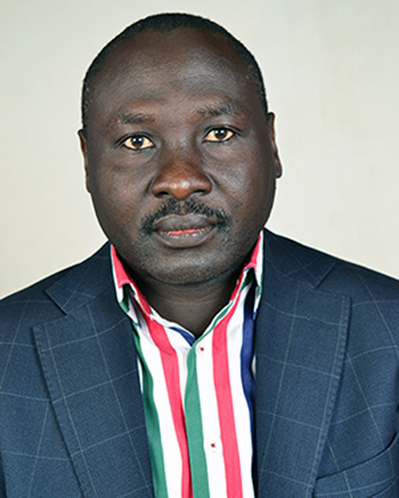
Khamati Shilabukha is an anthropologist with a bias towards conservation anthropology. He holds a PhD in Anthropology from the Institute of Anthropology, Gender and African Studies, University of Nairobi, and an MA and a BA in Anthropology from the same Institute. Currently he is a research fellow at the Institute, having previously worked for Catholic University of Eastern Africa, Nairobi, Kenya as an adjunct lecturer. He has also worked for ICRAF and Kengo, a local environmental NGO. Shilabukha has conducted action as well as academic research in various areas of anthropological concern ranging from culture, gender, and the environment through governance and infrastructural development, agriculture, health, and education. He has worked as a consultant for several national and international organizations including government departments and agencies, the World Bank, Population Council, UN agencies, the AU, GIZ, the Red Cross, PATH, World Vision, SIDA/SAREC, and AfricomNet among others.
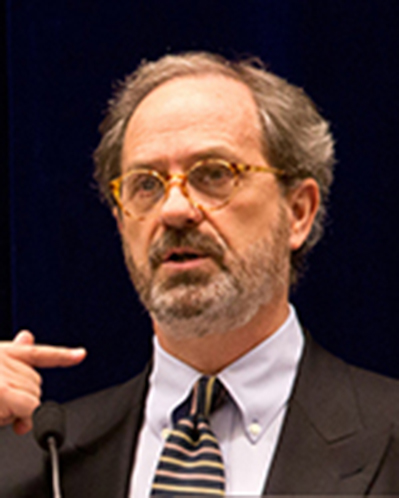
T. Jeremy Gunn, now at the International University of Rabat, was previously Professor of International Studies in the School of Humanities and Social Sciences at Al AKhwayn University. Prior to these appointments in Morocco, he served as director of the program on Freedom of Religion and Belief at the American Civil Liberties Union and as director of research at the US Commission on International Religious Freedom. He earned his PhD from Harvard University, JD from Boston University (magna cum laude), MA from the University of Chicago, and BA in International Relations and Humanities from Brigham Young University. His publications include his Harvard dissertation, published as A Standard for Repair: The Establishment Clause, Equality, and Natural Rights, and the articles 'Religious Symbols in Public Schools: The Islamic Headscarf and the European Court of Human Rights Decision in Sahin v. Turkey'; 'Permissible Limitations on Religion'; 'Freedom of Religion and International Politics', World Politics Review; 'Religious Symbols and Religious Expression in the Public Square'; 'The Human Rights System'; and the book, No Establishment of Religion: America’s Original Contribution to Religious Liberty, ed. with John Witte Jr. (OUP 2012).
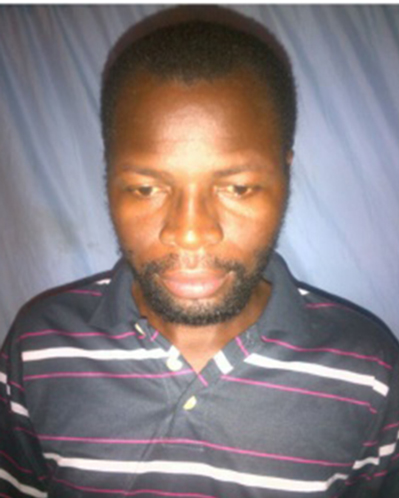
Júlio Raimundo Machele earned a degree in History with Honours from the University Eduardo Mondlane, Maputo, Mozambique in 2008. He is Assistant Lecturer at the Faculty of Arts and Social Sciences, University Eduardo Mondlane from 2008 to the present. His research interests include: Social Medicine; Traditional Medicine; Public Health; Environmental History; Poverty; Development; Urbanization; Music; and Religion.
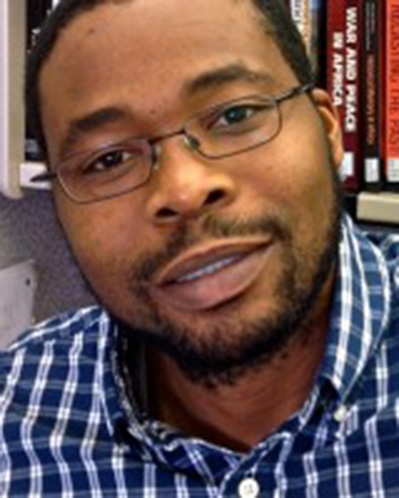
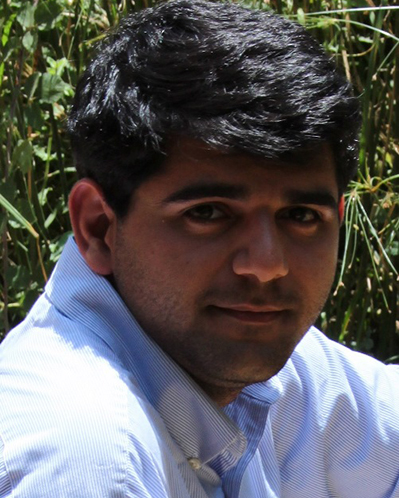
Sohail Wahedi is a PhD Candidate in the field of law and religion at Erasmus School of Law. He was a writing scholar in Brigham Young University’s inaugural Young Scholars Fellowship on Religion and the Rule of Law (Aug. 2018), and a visiting fellow at Osgoode Hall Law School, Toronto (Apr. 2018). Sohail’s work has appeared in Oxford Journal of Law and Religion, Buffalo Human Rights Law Review, Quinnipiac Health Law Journal and it is forthcoming in California Western Law Review and California Western International Law Journal.
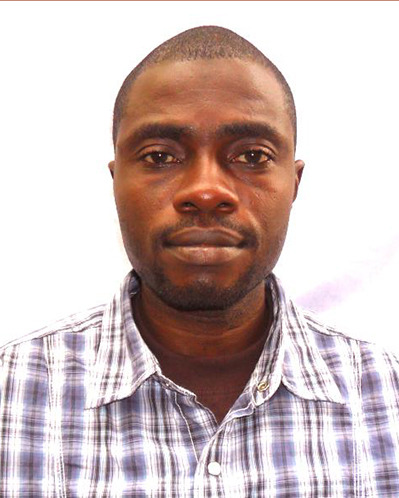
Dr. Adams Olufemi Akewula received a Bachelor of Arts in Arabic and Islamic Studies from University of Ibadan in 2005. He had a keen interest in language and was rewarded with the ‘Best Student in Islamic Law’ prize on Valedictory and Prize-Giving Day from his Arabic School. During his MA program in Arabic and Islamic Studies, he was introduced to Law and Religion which led to studies in Islamic jurisprudence and Shariah. He became a teacher of the Arabic aspect of Religion and Islamic Law. Dr. Akewula teaches Islamic jurisprudence in Arabic. He is a member of the Shariah Arbitrations panel in Ibadan, Oyo state and a visiting lecturer at the School of Legal Studies, Ilorin, Kwara state. Dr. Akewula’s goals include establishing a strong intercultural link in law and religion studies in Nigeria and Africa through mentoring younger scholars.
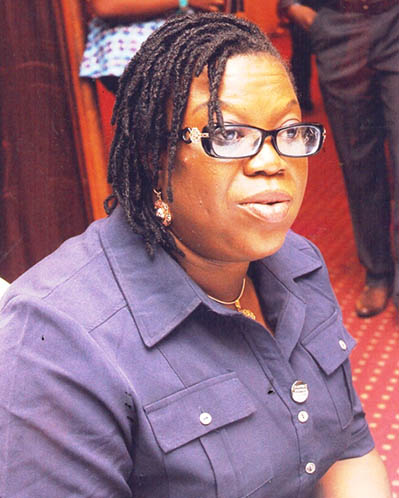
Dr. Abiola Akiyode-Afolabi is a law lecturer at the University of Lagos and the Founding Director of Women Advocates Research and Documentation Centre (WARDC), a prominent voice of the feminist movement in Africa, advocating for good governance, gender equality, voice and participation. Abiola is currently the Chairperson of the Transition Monitoring Group (TMG) the largest civil society coalition on elections in Nigeria and the Acting Secretary West African Law and Religion Society (WACLARS). Abiola has several academic publications and consults for local and international development organizations and governments on issues of gender, climate justice, anti-corruption, governance, and human rights. As a human rights attorney, Abiola supports hundreds of indigent women and girls annually in Nigeria through the instruments of law. She graduated from the Obafemi Awolowo University in 1994, and proceeded to the University of Notre Dame, USA in 1998 and later received her doctoral degree from the University of London. Abiola has been honored with several awards for her commitment to promoting human rights in Nigeria and Africa as a whole including the International Defenders’ Award to commemorate the first UN Anniversary of Human Rights Defenders in 1999.
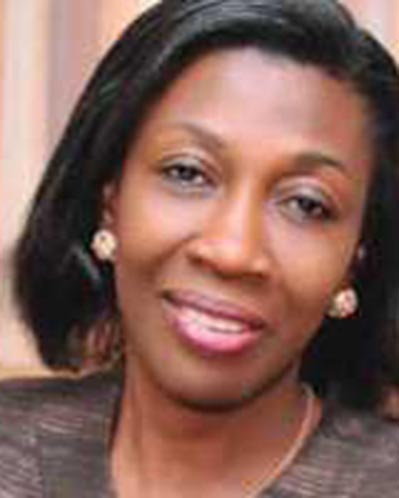
Ayodele Atsenuwa is a solicitor and advocate of the Supreme Court of Nigeria. She holds an LLM in Law and Development from the University of Warwick and another LLM degree in Criminology and Criminal Justice from the University of London. A Professor of Law at the University of Lagos, her research and teaching areas span human rights, criminal law and justice, and gender and the law.
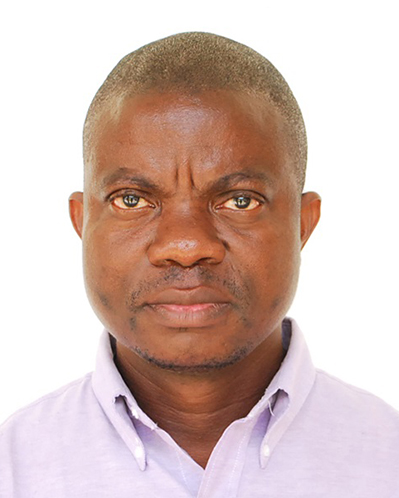
Dr. Adeyinka Oladayo Bankole holds a PhD degree in Sociology from the University of Ibadan, Nigeria. He began his career as a lecturer at the University of Ibadan. After some stint abroad, he joined the Redeemer’s University in 2009 and served as Head of Department of Behavioural Studies (2009-2011); Sub-Dean, College of Management Sciences (2013-2015); and Chairman, College Research Grants Committee (2011-2015). Currently, he is an associate professor and Head of Department of Sociology, Bowen University, Nigeria. His research is mainly in the field of sociology of development with specific focus on globalization, African studies, workplace behaviour, gender and sociology of religion. He was a UNESCO Fellow 2003-2004 and Research Scholar at the University of Warsaw, Poland from 2006 to 2008; a recipient of Leverhulme Trust Grants to participate in the Joint Programme of the University of Bristol and University College, London, United Kingdom on ‘Migration and Citizenship’ in 2008. He is a member of reputable learned societies, notably, International Sociological Association. Among his many publications, he is co-editor of the book titled NGOs, International Aid and Development in the South published by the University of Warsaw Press (Poland) in 2008.
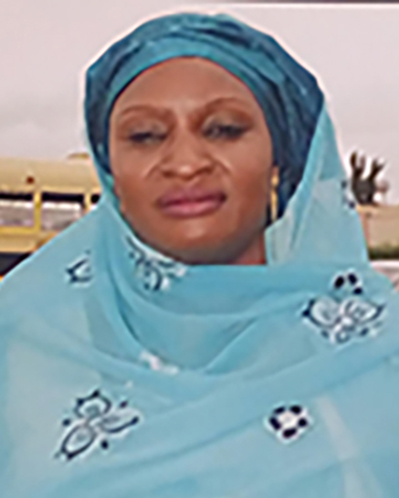
Maryam Bayero Jimoh attended Queen Elizabeth School (Senior Secondary Certificate, SSCE), University of Ilorin (Bachelor of Law, LLB), Nigerian law school, Abuja (Barrister at law, BL), Obafemi Awolowo University, Ile-Ife Osun state (Master of laws, LLM), University of Ilorin from 2014 (Doctor of Philosophy in law, PhD in progress). Maryam has worked with many reputable organisations like Wole Olanipekun and Co, Ilorin, Biola Adimula and Co, Court of Appeal, Ilorin division, Intellectual Research Institute, Ilorin, College of Arabic and Islamic Legal Studies (CAILS), Ilorin, and Al-Hikmah University. She has many publications in form of thesis, book chapters, and journal articles. She has attended international and national conferences, seminars, and workshop. She has rendered community service to such groups as the Nigerian Bar Association (NBA) and Federation of Women Lawyers (FIDA). She loves reading and singing.
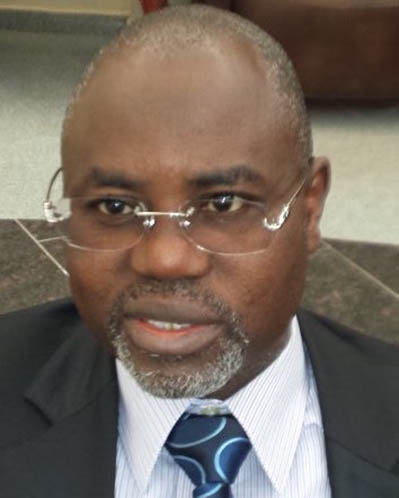
Wahab Egbewole is a legal practitioner and academic. He was called to the Nigerian Bar as a solicitor and advocate on 20th August 1985, and holds a Master’s and PhD in Law. Currently, he is a professor in the Department of Jurisprudence and International Law at the University of Ilorin. He served in various capacities in the Faculty including the office of the Dean, University of Ilorin. He is a member of the Governing Council of University of Ilorin representing the Senate and Director of General Studies Unit. He is a member of several learned societies including the African Consortium on Law and Religion, Law and Society Association, and the Nigerian Bar Association, and is a Fellow, Society for Peace Studies and Practice. At the 2015 International Bar Association held in Vienna, Austria he was unanimously elected as Newsletter Editor of the IBA Damages and Negligence Committee. He has published widely in the areas of Jurisprudence and Legal Theory and has five books in his name including Jurisprudence of Election Petitions by the Nigerian Court of Appeal (LAP Lambert Academic Publishing, Germany). He has attended several conferences including those of the American Society of International Law, the International Bar Association, and the Law and Society Association. He has served in executive positions of many learned societies, and is serving as External Examiner in a few Universities across the continent.
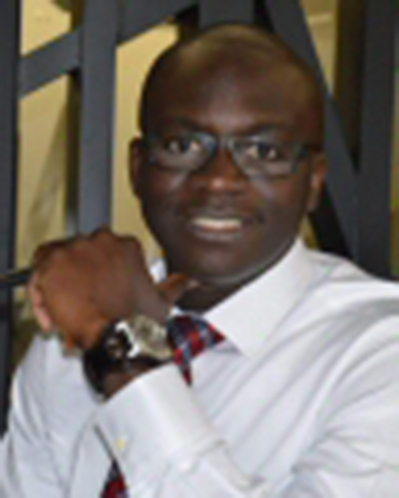
Dr. Uzuazo Etemire is a senior lecturer in the Faculty of Law, University of Port Harcourt, Nigeria. He is also the Acting Head of the Faculty’s Department of Jurisprudence and International Law. Dr. Etemire holds LLB, LLM and PhD in Law degrees from the University of Benin (Nigeria), University of Nottingham (England) and University of Strathclyde (Scotland), respectively. Apart from being called to the Nigerian Bar, he is a fellow of the Higher Education Academy, United Kingdom, and an alumnus of The Hague Academy of International Law, The Netherlands. In 2017 Dr. Etemire was a visiting scholar at the Faculty of Law, University of Barcelona, Spain, where he furthered his primary research interest that broadly lies in the field of Environmental Law. He has participated in several research projects, and has published widely in major peer-reviewed journals, including those hosted by renowned press houses like the Oxford University Press and the Cambridge University Press. Dr. Etemire is the recipient of several academic scholarships and awards, and is the author of the book: Law and Practice on Public Participation in Environmental Matters: The Nigerian Example in Transnational Comparative Perspective (Routledge, 2015).
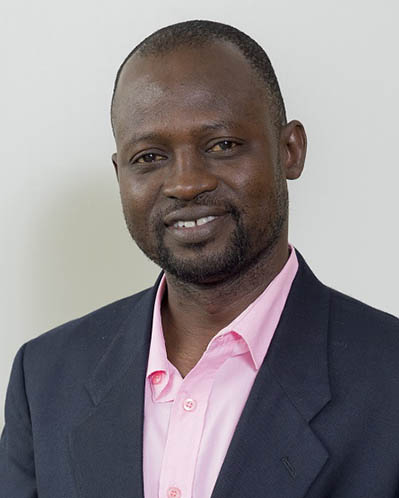
Ahmed Salisu Garba attended the University of Jos, Faculty of Law, earning First and Second Degrees in 2004 and 2011 respectively. Called to the Nigerian Bar in 2005, he is still in active legal practice and has held the position of Head of Chambers in the law firm of ABC Attorneys. He is presently the Acting HOD in the Department of Private and Business Law. He teaches law at the Bauchi State University, Gadau, in Nigeria. A PhD candidate at the Faculty of Law, Bayero University, Kano, Nigeria, he is working on the regulation of religious preaching in Nigeria with a focus on Islamic Preaching Board Laws. He was a visiting scholar at the University of Iowa College of Law in the United States from August–December 2013. His publications include a recent article in the Annual Review of Islam in Africa published by the University of Cape Town.
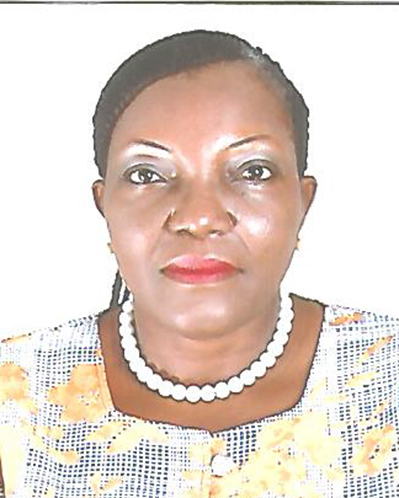
Patricia Imade Gbobo is a lecturer in the Department of Private and Property Law, Faculty of Law, University of Port Harcourt, Nigeria where she also doubles as a research editor in Uniport Journal of Private Law, a bi-annual peer reviewed journal published under the auspices of the Department of Private and Property Law. She holds an LLB and LLM degree from the Rivers State University, Port Harcourt. Nigeria. She is a barrister and solicitor of the Supreme Court of Nigeria and is currently a doctoral researcher at the same university with sub-specialty Human Rights Law and Gender Issues. She has published several articles in leading peer reviewed journals on critical aspects of Women and Child Rights Issues and Medical Law. Her scholarly works include An Appraisal of Discriminatory Cultural Practices Against Women in Nigeria; Child Trafficking in Nigeria: A Violation of the Rights of Children to Life, Security and Dignity; An Analysis of Doctrine of Informed Consent in Nigeria Health Care Services; The Customary, Religious and Legal Perspectives of Euthanasia in Nigeria: An Appraisal. She is a recipient of several academic scholarships and awards.
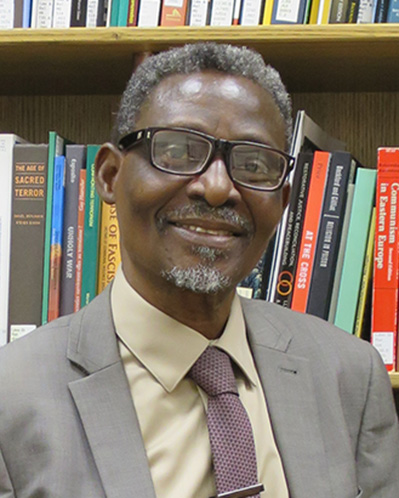
Akinola Ibidapo-Obe is Professor and former Dean of the Faculty of Law, University of Lagos, Akoka, Lagos, Nigeria. As Dean of Law, he pioneered the introduction of Law and Religion studies as an approved course in the Curriculum of the Faculty of Law of the University of Lagos for the 2016/2017 session. He is the former Director of the Centre for Human Rights (CHR) in the Faculty of Law. Professor Ibidapo-Obe's involvement with the law and religion movement began when he attended the 21st International Conference on Law and Religion held in Provo in October 2014. His faculty subsequently hosted an International Conference, "Towards Law and Religious Freedom in Africa", with support from Brigham Young University (BYU). Ibidapo-Obe together with his colleagues in several other Nigerian Universities and the Nigerian Bar Association (NBA) branches in Lagos and Ikeja, have formed the Nigeria Association for Law and Religion Studies (NALARS) and the West African Regional Centre for Law and Religion Studies (WARCLARS) to promote teaching and research on law and religion in Nigeria and the West Africa sub-region. NALARS, WARCLARS, ACLARS, ICLARS, and the National Judicial Institute of Nigeria are also collaborating to organize the 1st National Judicial Roundtable on the Intersection Between Law and Religion: World Perspectives in the Nigerian Capital, Abuja on June 20, 2016.
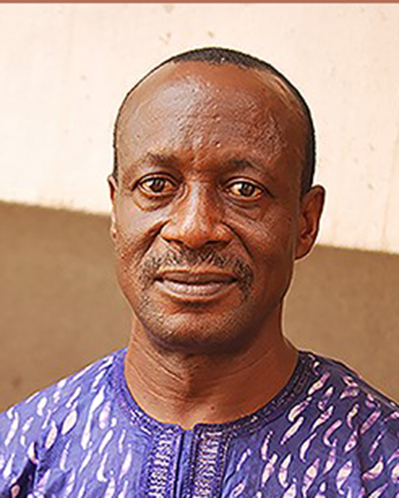
Makinde Olakunle Williams is a professional archaeologist and Heritage Site Manager with exposure to African countries such as Kenya, Botswana, Ethiopia, Burkina Faso, Togo, Ghana, Senegal, Cote d’Ivoire and the United States of America (IVLP) on Conferences, Workshops and Seminars. He has over 30 years work experience and has publications in local and international journals. He has served in the following National Museum stations: Lagos, Port Harcourt, Enugu, Benin City, Kaduna, Jos, Osogbo (UNESCO World Heritage Site as Manager) and now in Abuja. Mr. Makinde is a member of professional bodies like the Archaeological Association of Nigeria (AAN), West African Archaeological Association (WAAA), Society of Africanist Archaeologists (SAfA), among others. He is currently Deputy Director with the Nigerian National Commission for Museums and Monuments in charge of Research (Archaeology).
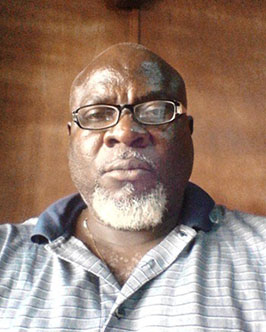
Danoye Oguntola Laguda, PhD, is a scholar of religion with specialization in philosophy of religion. He works in the Department of Religions and Peace Studies, Lagos State University, Ojo, Lagos, Nigeria, where he lectures and does research on the social values of religions, especially those dominant in Nigeria’s religious space. His areas of interest include but are not limited to religion and conflicts, religion and culture, and religion and social institutions. He is a member of America Academy of Religion (AAR) and Africa Association for the Study of Religion (AASR). He has published in several journals of international repute including Journal of Religion in Africa and Journal of Africa and Oriental Studies (JOAS).
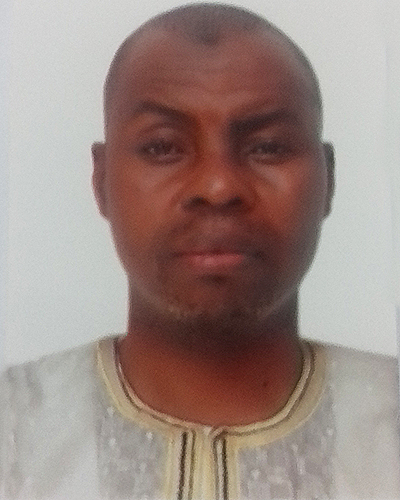
Afis Ayinde Oladosu is a professor in the Department of Arabic and Islamic Studies at the University of Ibadan. He specializes in Islamic Studies broadly defined and has expertise and competence in Islamic Law and Jurisprudence, Middle Eastern, North African and Cultural Affairs. Before his promotion to the rank of Professor at the University of Ibadan in 2011, Afis has participated in many international conferences on Islam and Muslim Culture in the United States, Malaysia, Uganda, Saudi Arabia and Sudan among others. He was a Fulbright Scholar to the University of Southern Maine, United States, a Bill Gates Scholar and fellow, African Scholar Program, at the University of Massachusetts, Amherst, a visiting professor to the International Islamic University of Malaysia, Kuala Lumpur and was once on sabbatical to the University of Ghana. Afis has published in all continents of the world except Latin America. He is a consultant and resource person to the Nigerian Supreme Council for Islamic Affairs (NSCIA), Muslim Students Society of Nigeria (MSSN), Federation of Muslim Women Organisation of Nigeria (FOMWAN) among others. He is an external examiner and assessor to Universities in Nigerian and abroad including International Islamic University of Malaysia (IIUM), Kuala Lumpur.
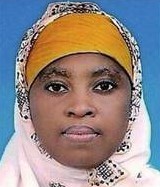
Dr. Habibat Oladusu-Uthman obtained her PhD from the International Islamic University Malaysia specializing in Islamic and other civilizations. Her areas of interest includes Gender studies, cultural criticism, modernity, History of Islam and Muslims in West Africa. She is the author of Muslim Women and the Politics of Emplacement (2011).
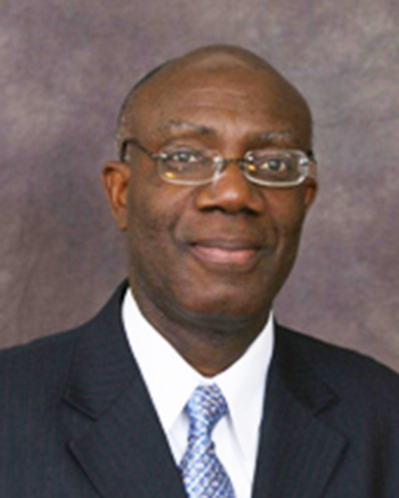
Adesina J. Olukanni joined the International Center for Law and Religion Studies as Senior Fellow for Africa upon his retirement in late 2016 after nearly a decade of service in Public Affairs for The Church of Jesus Christ of Latter-day Saints in Africa. He has served in numerous Church positions, including Area Seventy, and counsellor in the Africa West Area Presidency. He was the Country Director in Nigeria for Church Education Systems of the Church between April 2004 and March 2007. In April of 2007 he became the Director of Public Affairs for the Church in the Africa West Area and the Africa South East Area and served as Director in the Africa West Area until his retirement. During his tenure in Church public affairs, he helped launch and establish public affairs work in more than 30 countries in sub-Saharan Africa. His work for religious freedom in Africa has led to annual religious academic conferences in Nigeria and Ghana and the formation of the Law and Religion Center and Association in West Africa and Nigeria. Adesina was the Head of Information Technology, Department of the West African Portland Cement Plc. Lagos, Nigeria for 11 years out of a total of 17 years he spent working for the Company. Before that he worked in management positions in other blue chip companies in Nigeria, including the A. G. Leventis Group. Adesina has a bachelor’s degree in Computer Science and Economics from the University of Ife (now Obafemi Awolowo University, Ile-Ife) and a Master of Science degree in Computer Science from the University of Lagos, Nigeria.
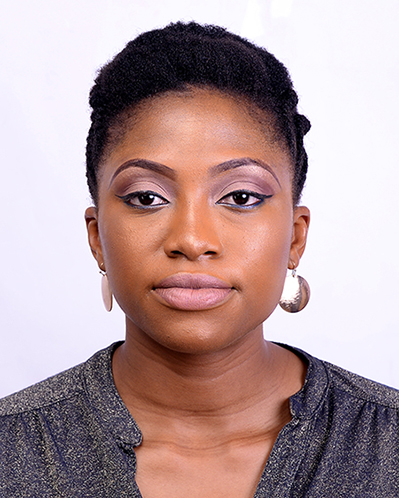
Hannah Idowu Olusoga-Tinubi is a law lecturer in the Department of Social Justice, College of Social and Management Sciences, Afe Babalola University Ado-EKiti in Nigeria. She obtained a Bachelor of Laws degree from Adekunle Ajasin University, Akungba-Akoko. She thereafter proceeded to the Nigerian Law School in Enugu where, after passing the bar exams with honours, she was called to the Nigerian Bar in 2010. She holds Master of Laws degrees in International law from Université Toulouse 1 Capitole in France. In her spare time she enjoys reading, planning events, and discovering new cultures. She is currently engaged in PHD research in Human Rights.
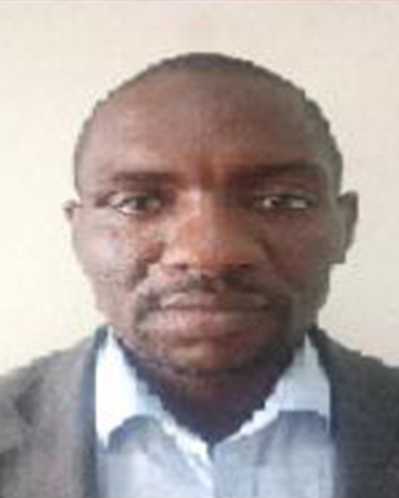
Dr. Ernest Ogwashi Ugbejeh is a lecturer in the Faculty of Law, National Open University of Nigeria and an expert in Commercial Law, Property Law, and Anti-Corruption Law and Strategies. He is also a researcher and an independent anti-corruption consultant. He obtained his Bachelor of Law degree from Ambrose Alli University (Nigeria) in 2006 and and was called to the Nigerian Bar in 2007 after graduating from the Nigerian Law School. Thereafter, he proceeded to the University of Benin where he obtained Master in Laws degree. He obtained a PhD in Law from the University of Buckingham, United Kingdom.
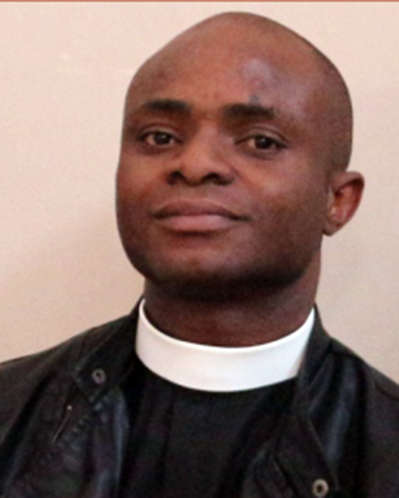
Idowu Akinloye is an ordained priest in the Church of Nigeria (Anglican Communion) and the Anglican Church of Southern Africa. He holds a Master’s degree in Law from the Obafemi Awolowo University, Ile-Ife. He obtained Honours degrees in Theology and in Law from the Archbishop Vining College of Theology and the Delta State University respectively. He was called to the Nigerian Bar in 2010. He lectured at the Faculty of Law, Ajayi Crowther University. He is currently enrolled at the Faculty of Law, Rhodes University for his PhD titled ‘An examination of the efficacy of church internal governance mechanisms in reducing legal disputes within South African and Nigerian churches.’
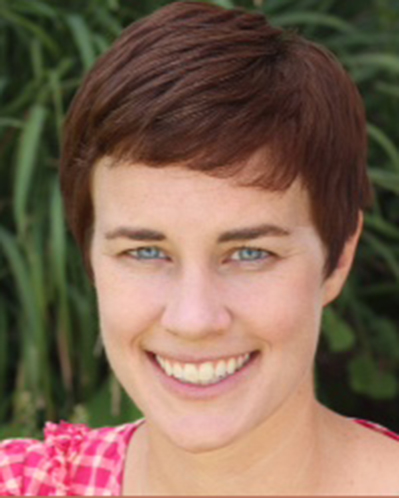
Dianna Bell is an associate research fellow in the Department of Religious Studies at University of Cape Town. She studies the history of Islam and indigenous religion in Francophone West Africa, especially southern Mali. She has published on an array of topics, including education, religion and the environment, the relationship between humans and animals, and dream interpretation using biography as her primary method. Her book, Between Prayers: The Life and Merit of a West Africa Muslim is due to be published by Duke University Press in spring 2020. She plans to begin studying law at the University of Cape next year.
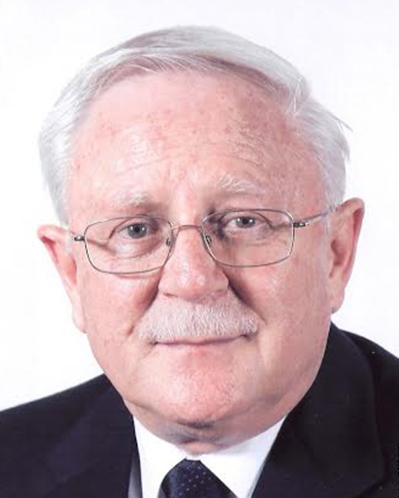
Retired professor of Theology at the University of Stellenbosch, Professor Coertzen still teaches a course in Comparative Canon Law at the KU Leuven every year. He is chairperson of the Unit for the Study of Law and Religion in the Beyers Naudé Centre for Public Theology, Faculty of Theology, University of Stellenbosch and President of the African Consortium for Law and Religion Studies (ACLARS). He holds seven degrees: BA, BA Hons, and MA in Philosophy (Pothefstroom University for Christian Higher Education); Bachelor of Theology, Licentiate in Theology, and Master of Theology in Ecclesiology, and doctorate degree in Theology (Ecclesiology) (University of Stellenbosch). For the Dutch Reformed Church, he has served in many capacities, including Parish Minister, Actuarius, and Church Law Committees. He was Senior Lecturer in Ecclesiology, Professor, and Dean of the Faculty of Theology (University of Stellenbosch). He has published 36 articles in NGTT (of which he has been editor for many years), has written 14 books, and is co-author or editor of more than 30 other publications. Among many honors and activities: Chairman of the Huguenot Memorial Museum in Franschhoek.
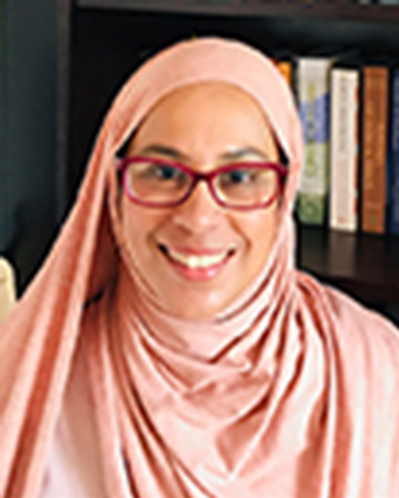
Fatima Essop obtained her Master’s in Law from the University of Cape Town in 2000. She has practiced as an attorney in public interest litigation, at both the Legal Resources Centre, a non-profit public interest law clinic, as well as at the Women’s Legal Centre, a public interest NPO which focuses on gender advocacy and litigation. At the Women’s Legal Centre, she initiated the Muslim Personal Law project, which sought to advocate and litigate for the recognition of Muslim marriages in South Africa. In 2003 she joined the Cape Bar as an Advocate of the High Court of South Africa where she practiced in various areas of law, including administrative law, constitutional law, environmental law, tort law, contractual law and family law. In 2013 she registered for a full-time degree in Islamic law and Arabic at the Islamic Peace College of South Africa, the only accredited tertiary Islamic institution in South Africa. She graduated cum laude in 2016 and decided to pursue her PhD on the intersection between South African and Islamic laws of succession. She is currently a lecturer in the Private Law Department at UCT, lecturing on Transformative Constitutionalism, whilst pursuing her PhD.
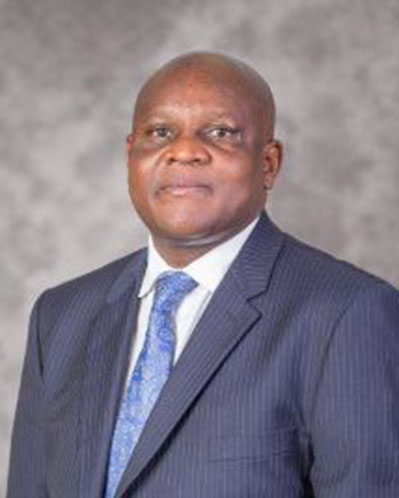
Mr. Tshimangadzo Edward Mafadza studied at Andrews University (USA) – BA Ed (English) in 1996; University of Venda – Honours in Gender Studies in 2000; University of Free State – Masters in Development Studies (MDS) in 2003; and University of Witwatersrand – Masters in Management - Public & Development Management in 2012. He was a lecturer in different institutions in his early career path life. He further worked for the Commission for Gender Equality. He then moved to the Commission for the Promotion and Protection of the Rights of Cultural, Religious and Linguistic Communities (CRL Rights Commission) as a Director for Community Engagement. He is currently the Chief Executive Officer of the CRL Rights Commission. Mr Mafadza is also a staunch Christian who served in different portfolios of the church.
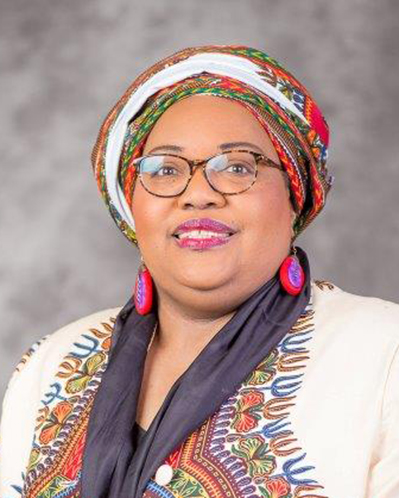
Thoko studied at the University of Fort Hare and the University of Zululand. She holds a degree, a post graduate degree, and a post graduate diploma from the two institutions. She was a teacher and a student counsellor in her earlier career life. She later worked as a researcher in Early Childhood Development. She was also responsible for setting up the first Office on the Rights of the Child in the Presidency as the head of that office. She then moved to being a consultant on the rights of women and children with a special focus on the impact of culture and religion on the realization of those rights. She then moved to the Commission for the Promotion and Protection of the Rights of Cultural, Religious and Linguistic Communities (CRL Rights Commission) as a Director for Public Education. She then also became the Chairperson of the Arts, Culture and National Heritage Distributing Agency of the National Lotteries Board. She is passionate about building the capacity of Non Profit Organizations in order for them to play an even bigger role in development. She is a mother, a child rights and gender equity activist. She is currently the Chairperson of the CRL Rights Commission.
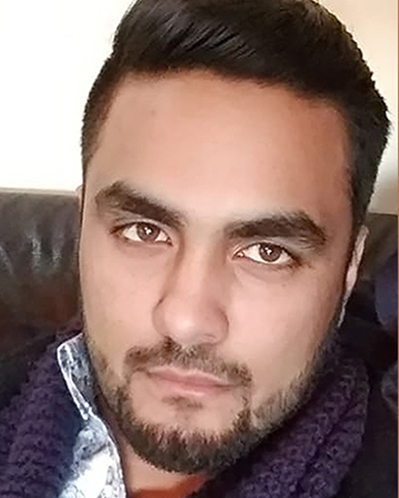
Nabil Mohamed holds a Bsc Honours degree in Mechanical Engineering from the University of Cape Town (UCT). He holds a post-graduate qualification in Islamic Studies at the Islamic Peace College of South Africa (IPSA). He is a post-graduate candidate at the University of the Western Cape (UWC) in Arabic and Islamic Studies, and he is currently pursuing a degree in Philosophy, Politics and Economics at University of South Africa (UNISA). Nabil Mohamed has worked in the oil and gas industries in the Sub-Saharan African region, and in the electricity utility industry in South Africa. He is the Founder and President of the REED Society and Co-founder and Director of Steep Box.
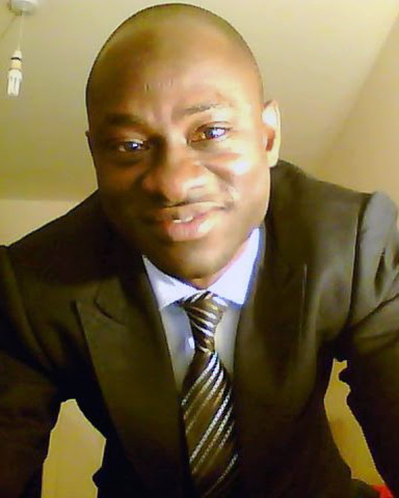
Saibu Mutaru is a Ghanaian citizen by birth. He holds a Bachelor of Arts degree in Sociology with Political Science from the University of Ghana, Legon. In 2011 he won a common scholarship award offered by the Commonwealth Scholarship Commission to undertake a postgraduate study at Edinburgh University leading to the award of a Master of Science degree in Africa and International Development. He is currently a Lisa Maskell Fellow at the Graduate School of Arts and Social Sciences, Stellenbosch University, where he pursues a PhD programme in Social Anthropology. His research focuses on ‘witch camps’ in Northern Ghana.
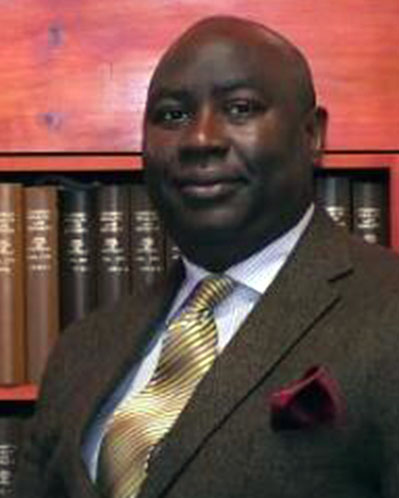
Professor Enyinna Sodienye Nwauche teaches in the area of company and commercial law with research interests in human rights in Africa; intellectual property and development; business and human rights; trade and culture; legal pluralism in Africa; law and religion; regional integration in Africa, and constitutionalism in Africa. He was Director of the Nigerian Copyright Commission (2002-2004); Dean at the Faculty of Law Rivers State University of Science and Technology (1999-2002); Member of the 8th & 9th Governing Councils of Rivers State University of Science and Technology; Director of the Centre for African Legal Studies Port Harcourt, and member of the Rivers State Economic Advisory Committee. He has published extensively in local and international peer reviewed publications; is a member of the editorial board of the Constitutional Court Review; a tutor at the WIPO Worldwide Academy, and a member of the Executive Council of the International Association of Constitutional Law (IACL). Professor Nwauche received his Bachelor of Laws (LLB) and Master of Law (LLM) degree from the Obafemi Awolowo University Ile-Ife. He also has a Doctor Legum (LLD) from the North-West University (Potchefstroom campus).
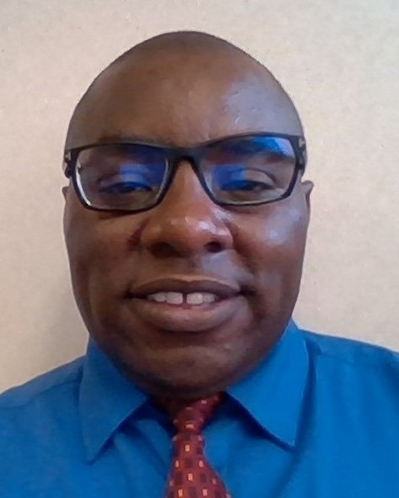
Mr. Jacob Nyangila holds a Master’s degree in Anthropology and a postgraduate diploma in Heritage Management. He is an experienced heritage expert with vast experience in heritage management in Africa, museology, culture and development, heritage and tourism, community development (with focus on development of Women and Youths programmes). He is currently a programme officer at the African World Heritage Fund (AWHF), specializing in World Heritage Management. He has been involved in initiating several heritage programmes on the African continent for the past 25 years. Prior to joining AWHF in 2008, he was a senior research scientist at the National Museums of Kenya where he was involved in research on cross cultural issues, Indigenous Knowledge Systems, Intangible Cultural Heritage and heritage management. He has written several publications on heritage management, museology and culture.
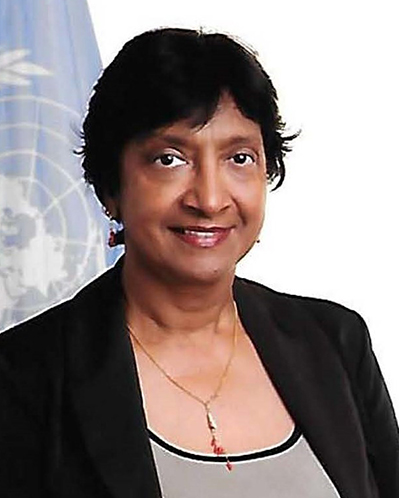
Dr. Navi Pillay is a former United Nations High Commissioner for Human Rights (2008-2014) and a former Judge of the International Criminal Court (2003-2008}. She also served for four years as the former Judge and President on the UN International Criminal Tribunal for Rwanda. In 1995, she was a former judge on the Kwa Zulu Natal High Court, South Africa, and from 1967-1995 she was an attorney in Durban, South Africa. Currently, Dr. Pillay serves as President of the Nuremberg Principles Academy Council, President of the International Coalition against the Death Penalty, a member of Africa Group for Justice and Accountability, and Chair of WWF Independent Panel for enquiry into allegations of breaches.
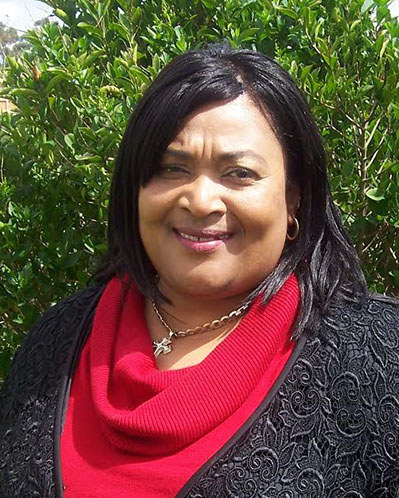
Prof. Mary Anne Plaatjies van Huffel teaches Ecclesiology and Church Polity at the University of Stellenbosch. Currently, she serves as the moderator of General Synod of the Uniting Reformed Church in Southern Africa and was chosen in 2013 as the Africa President of the World Council of Churches. She is the holder of two doctorates, namely in Systematic Theology (UNISA) and in Church Polity (University of Pretoria). She has published articles in accredited journals. Amongst Prof. MA Plaatjies van Huffel’s major publications are the following: Control, secede, vested rights and ecclesiastical property; The relevance of Reformed church polity principles: Revisiting the concept; The Belhar Confession: Born in the struggle against apartheid in Southern Africa, guiding light today; and From Justifying war to justifying peace: An historical overview of the discourse in ecumenical circles.
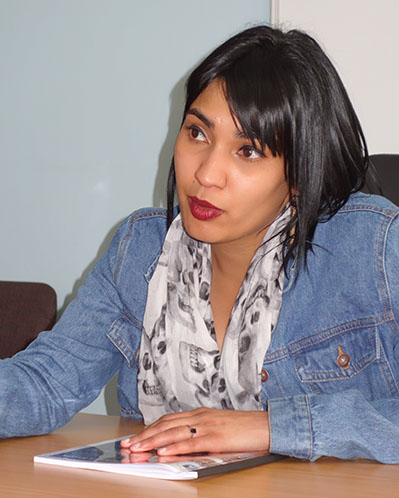
Lee-Shae Logan Scharnick-Udemans is a lecturer at the University of Cape Town. She holds a Bachelor in Social Science (Hons) and a Master's in Social Science (Distinction) from the University of Cape Town. Her research interests include religion and public pedagogy, religion and media, religion and politics, religion and law, and critical pedagogy and curriculum design. Her research focuses on the multiple historical and contemporary intersections of the religion, politics, and media triptych. It traces and critically engages with the historical and contemporary role of religion in the political economy of public broadcasting in South Africa.
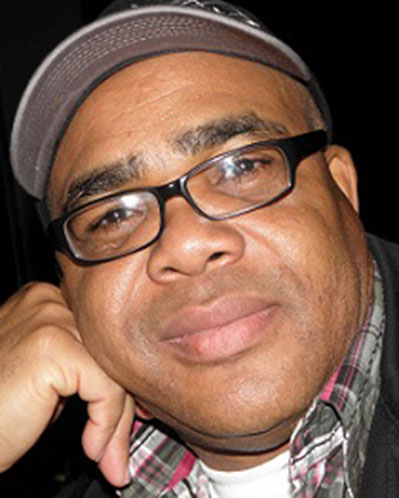
Asonzeh Ukah is a sociologist and historian of religion. He joined the University of Cape Town, South Africa, in 2013. Previously, he taught at the University of Bayreuth, Germany, from 2005 to 2013. He studied at the University of Ibadan, Nigeria, and the University of Bayreuth, Germany. He is the author of A New Paradigm of Pentecostal Power: A Study of the Redeemed Christian Church of God in Nigeria (Africa World Press, 2008) and co-editor of Bourdieu in Africa: Exploring the Dynamics of Religious Fields (Brill, 2016). He is Director of the Research Institute on Christianity and Society in Africa (RICSA), University of Cape Town, South Africa, and Affiliated Senior Fellow of Bayreuth International Graduate School of African Studies (BIGSAS), University of Bayreuth, Germany.
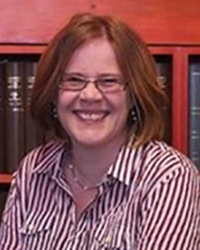
Helena van Coller is Associate Professor and Course Coordinator for Commercial Law 1 in the Faculty of Law at Rhodes University, South Africa. She also teaches Administrative Law to final year LLB-students. She joined the Faculty in July 2005. She obtained her LLB and LLM degrees (both with distinction) from the University of the Free State and an LLM (with distinction) from the University of Utrecht. She lectured part-time at the University of the Free State and supervised students from the Governance Programme, after obtaining a Master’s degree in Governance and Political Transformation from UFS in 2008. She was admitted as an advocate in 2004. She submitted her LLD (in Administrative Law) at the end of 2011 and graduated in 2012. She is an Advocate of the High Court of South Africa.
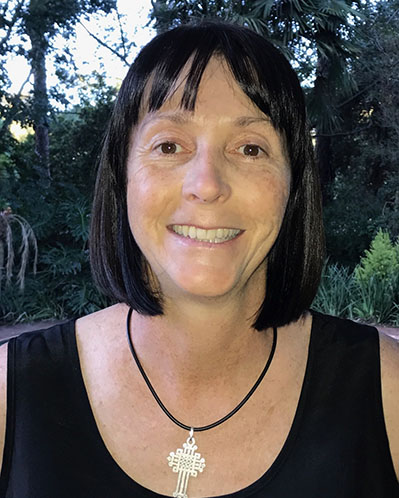
Yolanda van der Vyver holds a Master’s degree in Architecture from the University of Pretoria. For her thesis she rewrote the curriculum for a course on the History of the southern African environment. She obtained a BA Honours in French and a BArch from the University of Pretoria. She is currently enrolled at the University of the Free State for her PhD titled A critical interpretation of the temporal impact of landscape, space and power on the built environment of Church Square, Pretoria (1841-2016) and will receive her degree of Doctor in Architecture in June of 2019. She has been practicing architecture since 1996, is a founding member of Y and K Architects, and a fellow of the Association of Arbitrators.
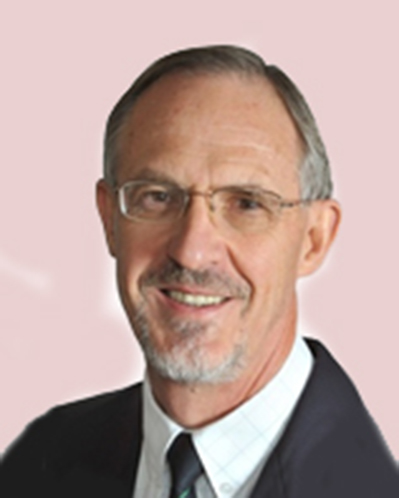
Francois Venter began teaching law in 1974 in the Faculty of Law in Potchefstroom, South Africa. Since 1980, he has been a full professor. He has been the recipient of multiple funding grants from the Alexander von Humboldt Stiftung. In 1998 he founded P E R (Potchefstroom Electronic Law Journal). He was the Dean of Law from 2001-2012. Venter has also been President of the South African Law Deans' Association 2009-2010. He is a research associate, Faculty of Law, Potchefstroom since 2013. His books include Constitutional Comparison – Japan, Germany, Canada and South Africa as Constitutional States (2000); Global Features of Constitutional Law (2010); Constitutionalism and Religion (2015).
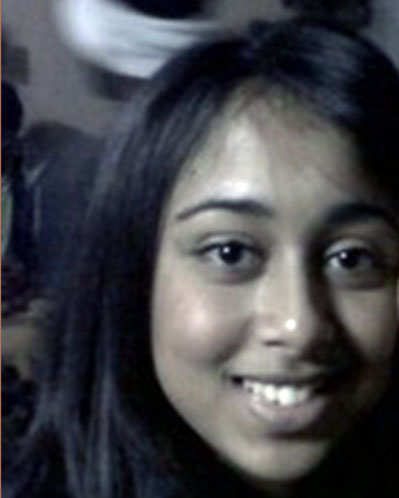
Tammy Wilks is a doctoral candidate in Religion at the University of Cape Town. Her dissertation focuses on the material strategies of communities in Nairobi in their management of religious difference.
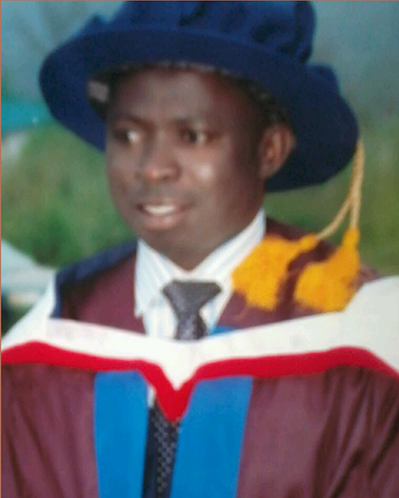
Dr. Hanafi Adenkule Hammed attended Kwara State College of Education, Ilorin (NCE, 1991), Usman Danfodio University, Sokoto (LLB, 1997), Nigeria Law School, Abuja, (BL 1999), Obafemi Awolowo University, Ile-Ife (LLM, 2006) & University of Ilorin, Nigeria (PhD 2014). He practiced law at Saka Isau & Co and Ashaolu Anifaloba & Co. He has worked at Kwara State College of Arabic & Islamic Studies, Ilorin and Kogi State University, Anyigba, and was a Senior Lecturer at Al-Hikmah University, Ilorin, Kwara State until 2018. While at Al-Hikman he served in various capacities including HOD, Public & International Law; Chairman, Seminar Committee, Faculty of Law; Editor-in-Chief, Al-Hikmah University Public & International Law Journal, among others. Currently, he is a diplomat & Senior Lecturer at Kampala International University, Uganda where he is a member of the Undergraduate Long Essay Moderation Committee, and the postgraduate Programme. Dr. Hammad served as Assistant Legal Adviser (2005-2008), Organising Secretary (2006-2008), and Secretary of the Disciplinary Committee (2007) for the Peoples' Democratic Party, Kwara State Chapter. Dr. Hammed has fifty publications and has attended many conferences and workshops including the 5th Annual Conference on Law, Religion and Security, held at International University of Morocco in 2017, and the International Conference on African Political, Economy and Development Strategies held at Sokoto State University in 2017.
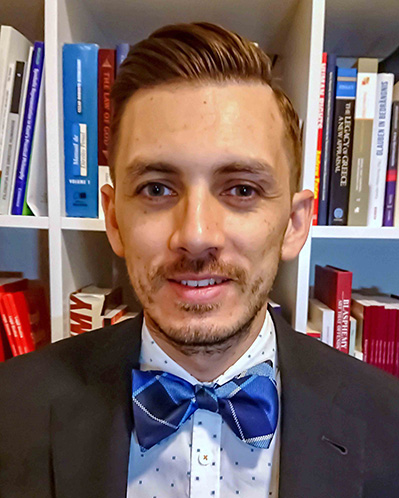
Thiago Alves holds an LLB (Hons.) from Centro Universitário Curitiba (Brazil) and a Master's Degree in International Human Rights Law from Åbo Akademi University (Finland), where he graduated with honours eximia cum laude approbatur. He is currently in the final year of his DPhil in Law, researching on the topic of offence to religious belief in international human rights law. He has been actively involved with NGOs both at a national and international level. He received a scholarship from the Norwegian Peace Corps to spend a year in Norway studying Cross-Cultural Communication (2007-2008) and did internships at the Office of the Public Defender in Brazil and with the United Nations Special Rapporteur on Freedom of Religion or Belief. He worked for the International Organization for Migration in Finland, on counter-trafficking and development projects. He was a graduate teaching assistant for Human Rights Law (2015-17) and is currently a Human Rights Law tutor and secretary of the Oxford Society for Law and Religion.
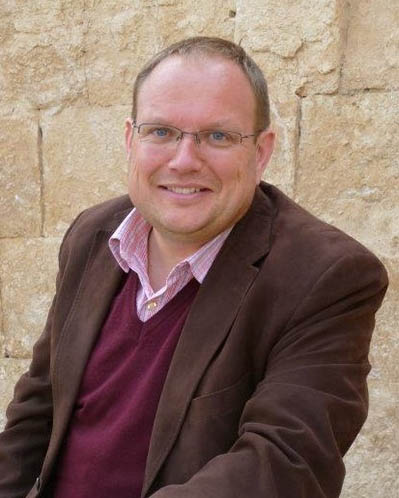
Mark Hill QC is a barrister specialising in ecclesiastical law and religious liberty. He has represented clients in UK Supreme Court and European Court of Human Rights. He is a recorder on the Midland Circuit (sitting in criminal, civil and family cases) and Deputy Judge of Upper Tribunal, Immigration and Asylum Chamber. He sits as judge in ecclesiastical courts of the Church of England and is Visiting Professor at Cardiff University’s Centre for Law and Religion (United Kingdom), at University of Pretoria in South Africa, and at the Dickson Poon School of Law at King’s College, London. Publications include Magna Carta, Religion and the Rule of Law, Religion and Law in the United Kingdom, Religion and Discrimination Law in the European Union, Ecclesiastical Law, Religious Liberty and Human Rights, and English Canon Law. He is a Consultant Editor of the Ecclesiastical Law Journal and a member of the Editorial Boards of the Oxford Journal of Law and Religion and the Revista General de Derecho Canónico y Derecho Eclesiástico del Estado. He is Ecumenical Fellow in Canon Law at the Venerable English College in Rome, and a former President of the European Consortium for Church and State Research. He is an accredited mediator, current co-chair, and a founder of BIMA, a charity which promotes faith-based mediation.
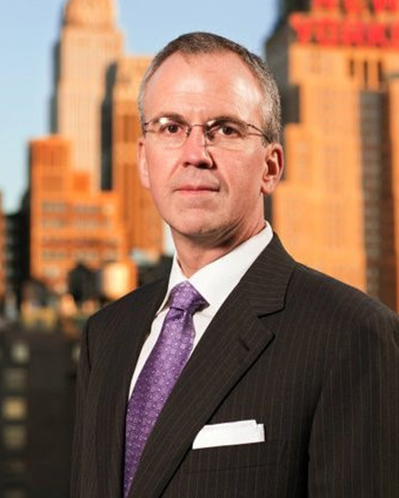
Brent Belnap earned a BA in Political Science from Brigham Young University and a JD in Law from Columbia Law School. He is an attorney and has served as Senior Vice President and Counsel for Citigroup, Inc., Senior Vice President and Acting General Counsel for iQor, Inc., and acted as Managing Director for Odyssey Capital Group, LLC in New York. He has been Of Counsel and Regional Legal Counsel to Kirton McConkie. He is a senior fellow for the International Center for Law and Religion Studies, J. Reuben Clark Law School, Brigham Young University.
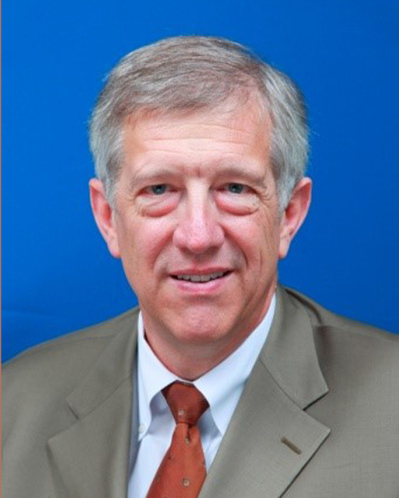
David Berrett received a BA in Political Science from Brigham Young University and a JD in Law from the J. Reuben Clark Law School, Brigham Young University. He practiced law for several years in Denver, Colorado before becoming the Director of Legal Services in the Human Resources Department for The Church of Jesus Christ of Latter-day Saints. He later served as a mission president in India for the Church. From 2016-2018 he was Of Counsel for Kirton McConkie. He is a senior fellow for the International Center for Law and Religion Studies, J. Reuben Clark Law School, Brigham Young University.
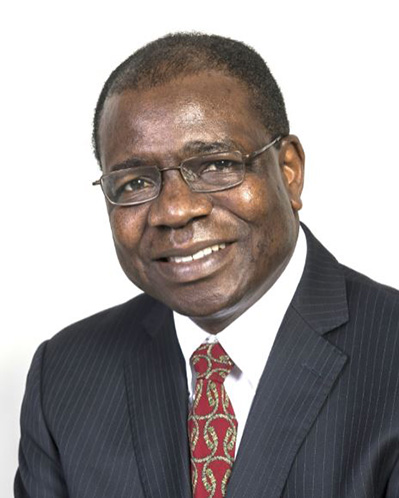
Elias Kifon Bongmba is the Harry and Hazel Chair in Christian Theology and Professor of Religion at Rice University. Professor Bongmba is President of the African Association for the Study of Religion. He has authored dozens of peer reviewed essays and book chapters and is author of The Dialectics of Transformation in Africa, which won the Frantz Fanon Prize in Caribbean Thought.
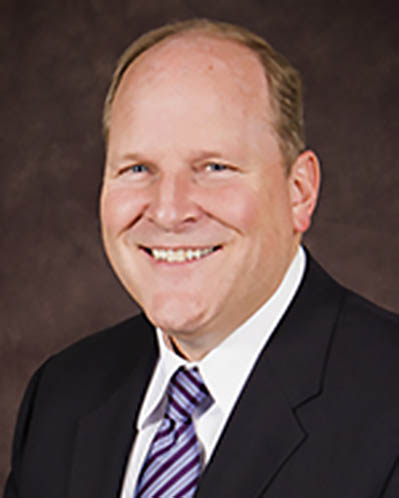
Gary B. Doxey, Associate Director, International Center for Law and Religion Studies, J. Reuben Clark Law School, Brigham Young University, joined the Center in 2005 and serves as regional advisor for Latin America. He also heads the Center’s development effort. He has co-authored several commentaries on draft legislation, and a number of amicus briefs in Latin America. He also teaches in the History Department at Brigham Young University. Professor Doxey’s career has been divided between academia and public service. Prior to joining the law school, he was chief of staff and general counsel to Utah governors Mike Leavitt and Olene Walker and served as deputy commissioner of financial institutions and as associate general counsel to the Utah Legislature. He has a PhD in History from Cambridge University and a JD from Brigham Young University. He speaks or reads several languages and has authored several scholarly publications.
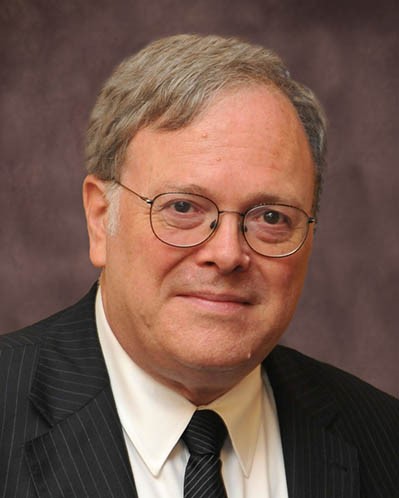
W. Cole Durham, Jr. is Susa Young Gates Professor of Law at the J. Reuben Clark Law School of Brigham Young University, where he is also the Founding Director of the International Center for Law and Religion Studies, a position he has held since the Center was officially organized on January 1, 2000. A graduate of Harvard College and Harvard Law School, where he was a Note Editor of the Harvard Law Review and Managing Editor of the Harvard International Law Journal, Professor Durham has been heavily involved in comparative law scholarship, with a special emphasis on comparative constitutional law. He is currently the President of the International Consortium for Law and Religion Studies (ICLARS), based in Milan, Italy, and a Co-Editor-in-Chief of the Oxford Journal of Law and Religion. From 1989 to 1994, he served as the Secretary of the American Society of Comparative Law, and he is also an Associate Member of the International Academy of Comparative Law in Paris—the premier academic organization at the global level in comparative law. He served as a General Rapporteur for the topic “Religion and the Secular State” at the 18th International Congress of Comparative Law held in July 2010. He has also served in earlier years as Chair both of the Comparative Law Section and the Law and Religion Section of the American Association of Law Schools.
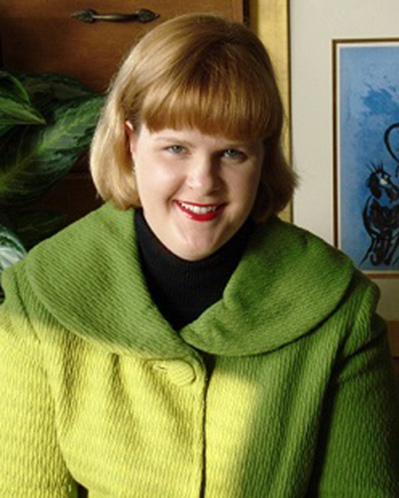
M. Christian Green is Senior Fellow at the Center for the Study of Law and Religion and an editor at the Journal of Law and Religion at Emory University. She taught religious ethics at DePaul University, Harvard Divinity School, and the Candler School of Theology at Emory. During the 2010-2011 academic year, she was a visiting research fellow at the University of Notre Dame’s Kroc Institute for International Peace Studies, researching issues of religion, rights, and identity. Her general research interests include law and religion, human rights, feminism and the family, religion and world affairs, and global ethics.
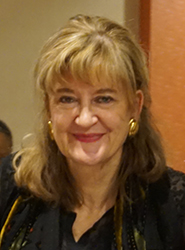
Prior to receiving her PhD in Religious Studies from the University of Aberdeen, Scotland, Rosalind Hackett taught at Nigerian universities. Since moving to the US, she spent a year as Liberal Arts Fellow in Law and Religion, Harvard Law School, and Senior Fellow, Center for the Study of World Religions. She was also a Rockefeller Research Fellow at the Kroc Institute of International Peace Studies at the University of Notre Dame. She was appointed a Mellon Fellow at the University of Cape Town in Religious Studies in 2014. She spent 2014-15 as Visiting Professor and Research Associate at the Women’s Studies in Religion program at Harvard Divinity School. She has published widely on religion in Africa. notably on new religious movements, religious media, gender and religion, regulation of religious diversity, and religion and conflict Recent (co-edited) publications include Displacing the State: Religion and Conflict in Neoliberal Africa (2011), The Anthropology of Global Pentecostalism and Evangelicalism (2015) and New Media and Religious Transformations in Africa (2015). She is the editor of Proselytization Revisited: Rights Talk, Free Markets, and Culture Wars. She served as President of the International Association for the History of Religions (IAHR) from 2005-2015 and is now an Honorary Life Member. She is a co-founder of the IAHR Women Scholars Network, a founding member of the African Association for the Study of Religions, and is part of the founding steering committee of the African Consortium on Law and Religion Studies. She has served as President of the North American Association for the Study of Religions (NAASR), and is Founder/coordinator of Jazz for Justice Project and UT Gulu Study and Service Abroad Program (GSSAP) in northern Uganda.
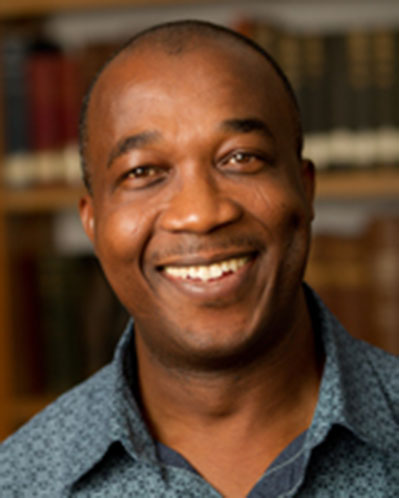
Simeon Ilesanmi received his PhD from Southern Methodist University and his JD from Wake Forest University School of Law. He teaches courses in comparative ethics, international human rights, religion and law, ethics of war and peace, and African religions. He is the author of Religious Pluralism and the Nigerian State (Ohio University Press, 1997) and numerous articles and book chapters on African religion, ethics, war and politics. He is an Associate Editor of Journal of Religious Ethics and serves on the editorial boards of several other learned journals. His current and ongoing research interests focus on human rights, ethics of war, and religion, law and politics in Africa.
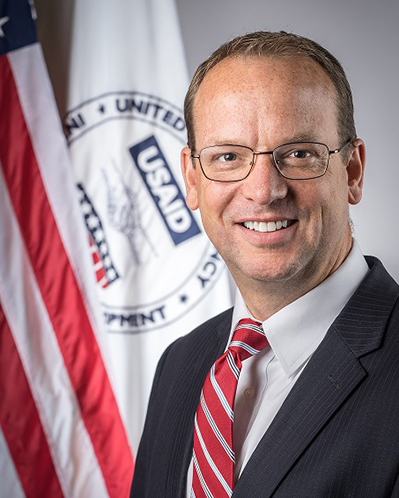
David Moore is General Counsel of the U.S. Agency for International Development. He previously served as Acting Deputy Administrator. Prior to his appointment at USAID, he was the Wayne M. and Connie C. Hancock Professor of Law and Associate Dean for Research and Academic Affairs at Brigham Young University's J. Reuben Clark Law School. His research focused on U.S. foreign relations law, international law, international human rights, and international development, and appears in leading journals, including the Harvard, Columbia, Virginia, and Northwestern law reviews. Prior to joining the law faculty at BYU, Moore researched and taught as an assistant and then associate professor at the University of Kentucky College of Law and as an Olin Fellow at the University of Chicago Law School. Moore clerked for Justice Samuel A. Alito, Jr. on the U.S. Supreme Court during the 2007 Term, and for Judge Alito on the U.S Court of Appeals for Third Circuit from 2000 to 2001. Moore began his legal career as an Honor Program trial attorney at the U.S. Department of Justice, Civil Division, Federal Program Branch. He graduated summa cum laude and first in his class from Brigham Young University Law School and Brigham Young University.
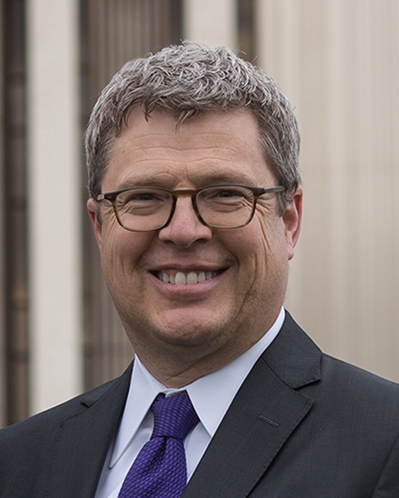
Brett G. Scharffs is Rex E. Lee Chair and Professor of Law and Director of the International Center for Law and Religion Studies at Brigham Young University Law School. He received a BSBA in international business and an MA in philosophy at Georgetown University and, as a Rhodes Scholar, earned a BPhil in philosophy at Oxford. He received his JD from Yale Law School, where he was senior editor of the Yale Law Journal. He is a recurring visiting professor at Central European University in Budapest and at the University of Adelaide Law School. He has for several years helped organize certificate training programs in religion and the rule of law in China and in Vietnam and has taught and helped organize programs at several Indonesian universities on sharia and human rights. Author of more than 100 articles and book chapters, he has made more than 300 scholarly presentations in 30 countries. His casebook, Law and Religion: National, International and Comparative Perspectives (with Cole Durham, 2nd English edition forthcoming 2017), has been translated into Chinese and Vietnamese, with Turkish, Burmese, and Arabic in process. He is author with Elizabeth Clark of Religion and Law in the USA, a 2016 contribution to Wolters Kluwer’s International Encyclopaedia of Laws.
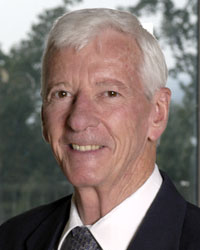
Johan van der Vyver is I.T. Cohen Professor of International Law and Human Rights, Emory University, and Extraordinary Professor in the Department of Private Law of the University of Pretoria, South Africa. Formerly, he was Professor of Law at the University of the Witwatersrand, Johannesburg, and the Potchefstroom University for Christian Higher Education in South Africa. He served as the Human Rights Fellow of The Carter Center from 1995-1998. Current teaching obligations include Public International Law, International Human Rights, International Criminal Law, International Humanitarian Law, Comparative Bills of Rights, and Implementation of International Law in the United States. He holds the degrees of Bachelor of Commerce, Bachelor of Laws, Honours Bachelor of Arts in Philosophy (Potchefstroom University); Doctor of Laws (University of Pretoria); and the Diploma of the International and Comparative Law of Human Rights (International Institute of Human Rights, Strasbourg). He was awarded honorary Doctor of Laws degrees by the University of Zululand in 1993 and Potchefstroom University in 2003. The author of eleven books and monographs and close to 300 chapters in books, law review and other articles, and book reviews, his research interests include human rights, and international criminal law among others.
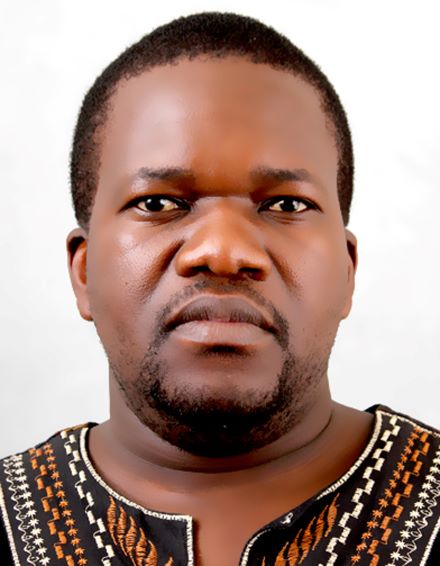
Ezra Chitando serves as Theology Consultant/Southern African Regional Coordinator for the World Council of Churches Ecumenical HIV and AIDS Initiatives and Advocacy. He is also Professor of History of Religion at the University of Zimbabwe. His research and publication interests include Religion and: Human Rights, Sexuality, Gender, Security, Climate Change, Politics, Economics and others.
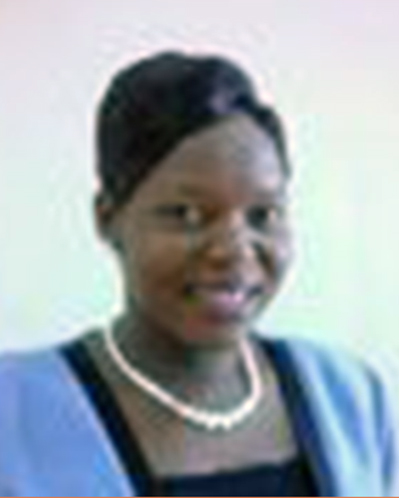
Rev Ms Henerieta Mgovo is a holder of MA (UZ), BA Honours (UZ), PGDE (ZEGU), DRS (UZ). She is a lecturer at Zimbabwe Ezekiel Guti University in the department of Humanities and Social Sciences, Theology and Religious Studies Section. She teaches New Testament courses and Greek courses. Her research is in religion and political transformation, gender, and the environment.
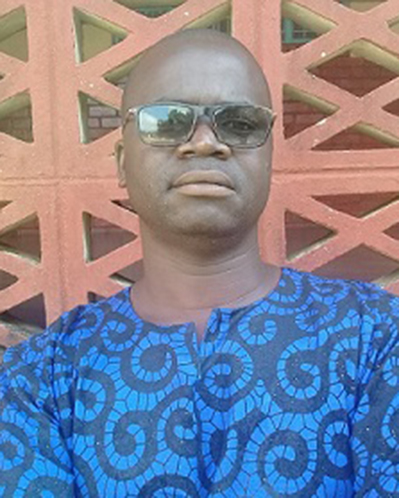
Rev. Simbarashe Munamati is an educationist called by the Lord to ministry in the Reformed Church in Zimbabwe (RCZ). He holds a Diploma in Education (University of Zimbabwe, 2000), Diploma in Theology (Murray Theological College, 2010), Honours in Theology and Religious Studies (Midlands State University, 2014) as well as a Master of Arts in Religious Studies from the University of Zimbabwe awarded in 2017. Reverend Munamati was ordained as a Minister of Religion of the RCZ on 2 of April 2011. Currently he is a Doctor of Philosophy candidate with the University of Zimbabwe in the field of Religion and Development. Reverend Munamati is serving as a Minister of Religion in the RCZ as well as the Vice Principal cum Academic Dean of Murray Theological Seminary of the RCZ. He is interested in research in the areas of Ecclesiology, Gender, and Development.
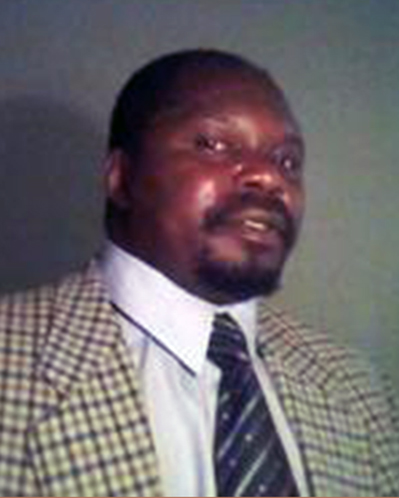
Rev. Menard Musendekwa is a minister of religion in the Reformed Church in Zimbabwe. After completing the Diploma in Theology at the RCZ Murray Theological College, he served in Marondera Congregation for three years. He continued his studies at Justo Mwale University, Zambia, where he completed his Bachelor of Theology degree before joining Stellenbosch University where he completed his Postgraduate Diploma in 2010 and Master of Theology degree in 2011. He then Joined RCZ Murray Theological College and shortly after that was appointed Faculty Coordinator at the Reformed Church University (RCU), Zimbabwe. He held various positions in the two institutions of the Reformed Church in Zimbabwe. Currently he is the Acting Coordinating Lecturer in the Faculty of Arts, Theology and Religious Studies at RCU. He is a budding scholar in various disciplines that include Church History and Old Testament Studies. He is also publisher of book chapter in “The Legacies of Albert Schweitzer Reconsidered”. He is a research associate with Stellenbosch University and a PhD candidate at the University of South Africa.
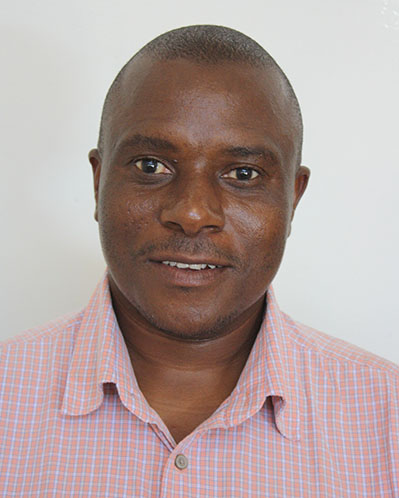
Fortune Sibanda lectures in the Department of Philosophy and Religious Studies, Great Zimbabwe University, Masvingo. He obtained his PhD in Religious Studies from the University of Zimbabwe in 2015. He has published many articles in refereed journals, and written book chapters on various themes from a religious studies perspective such as new religious movements, land, indigenous ways of knowing, human rights issues, and the environment in the African context. Among other platforms, Sibanda attended and presented papers at the second and third ACLARS conferences.
